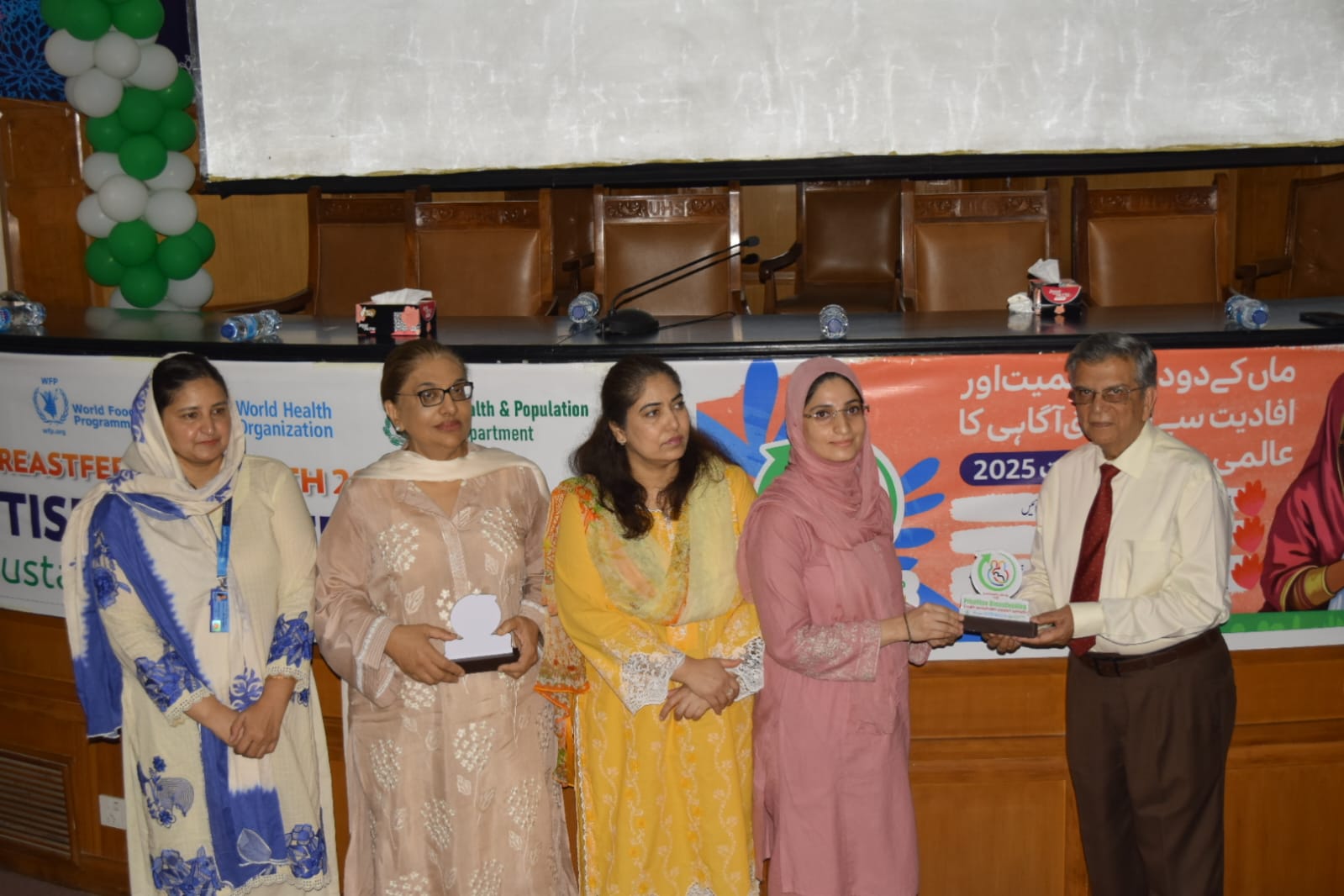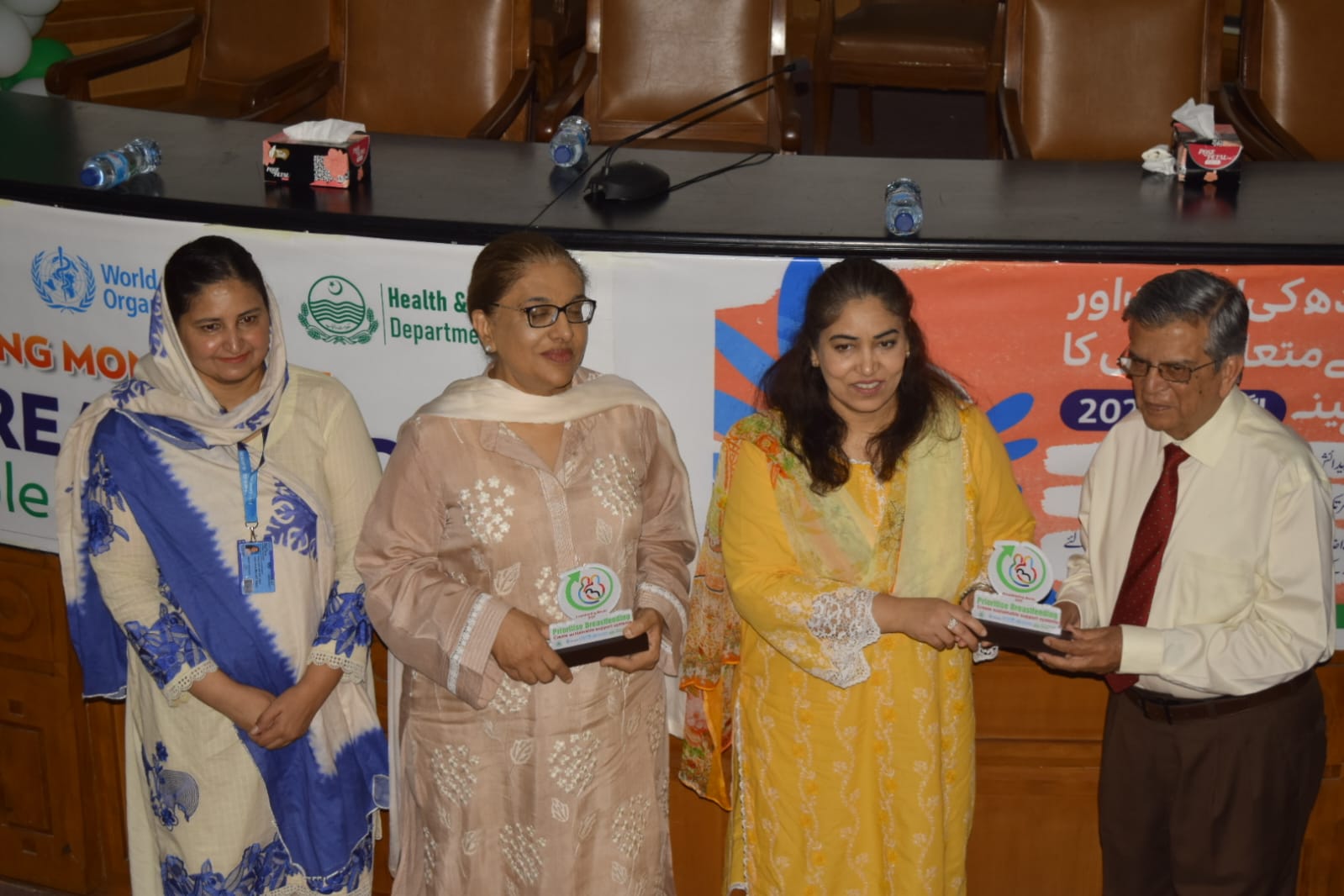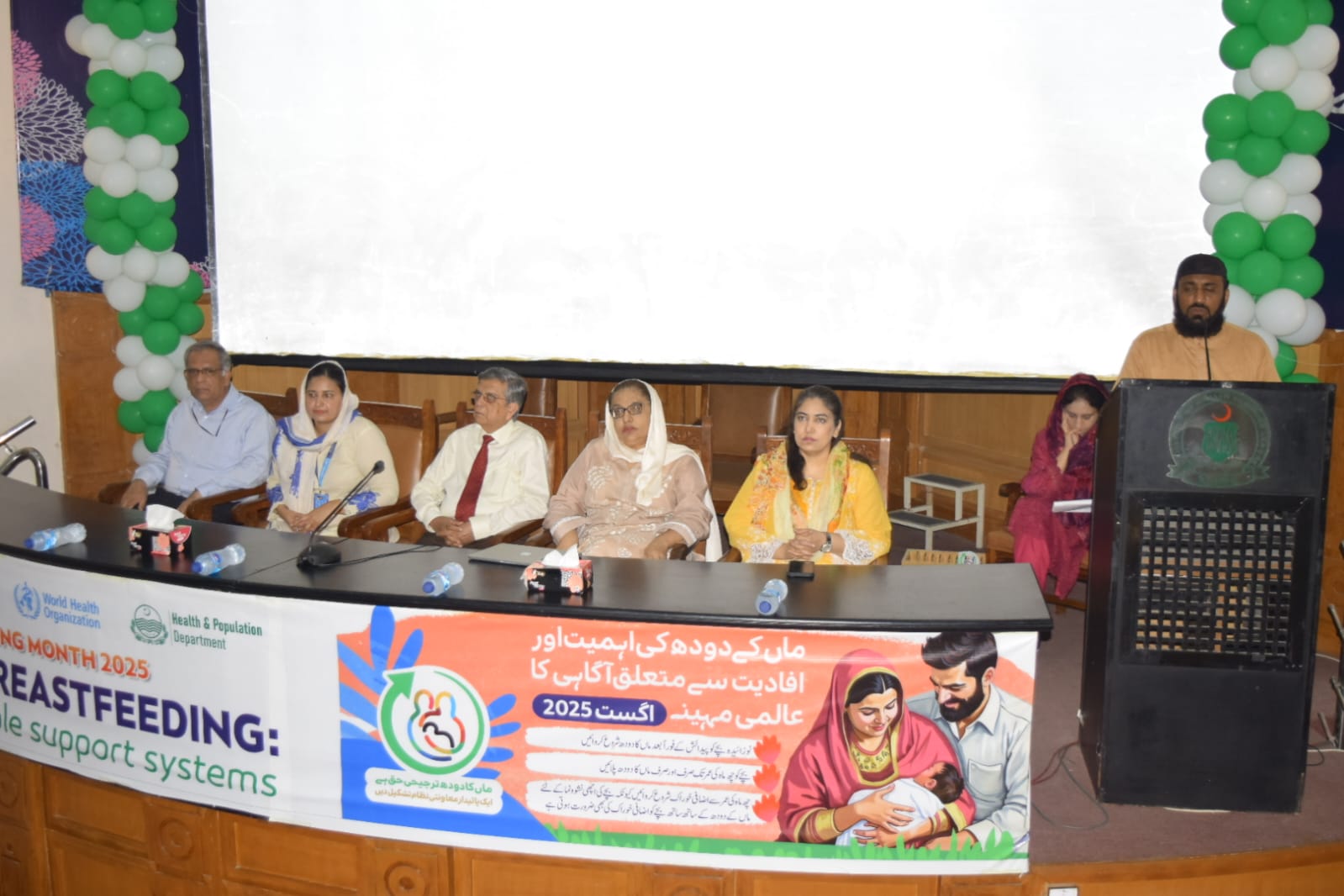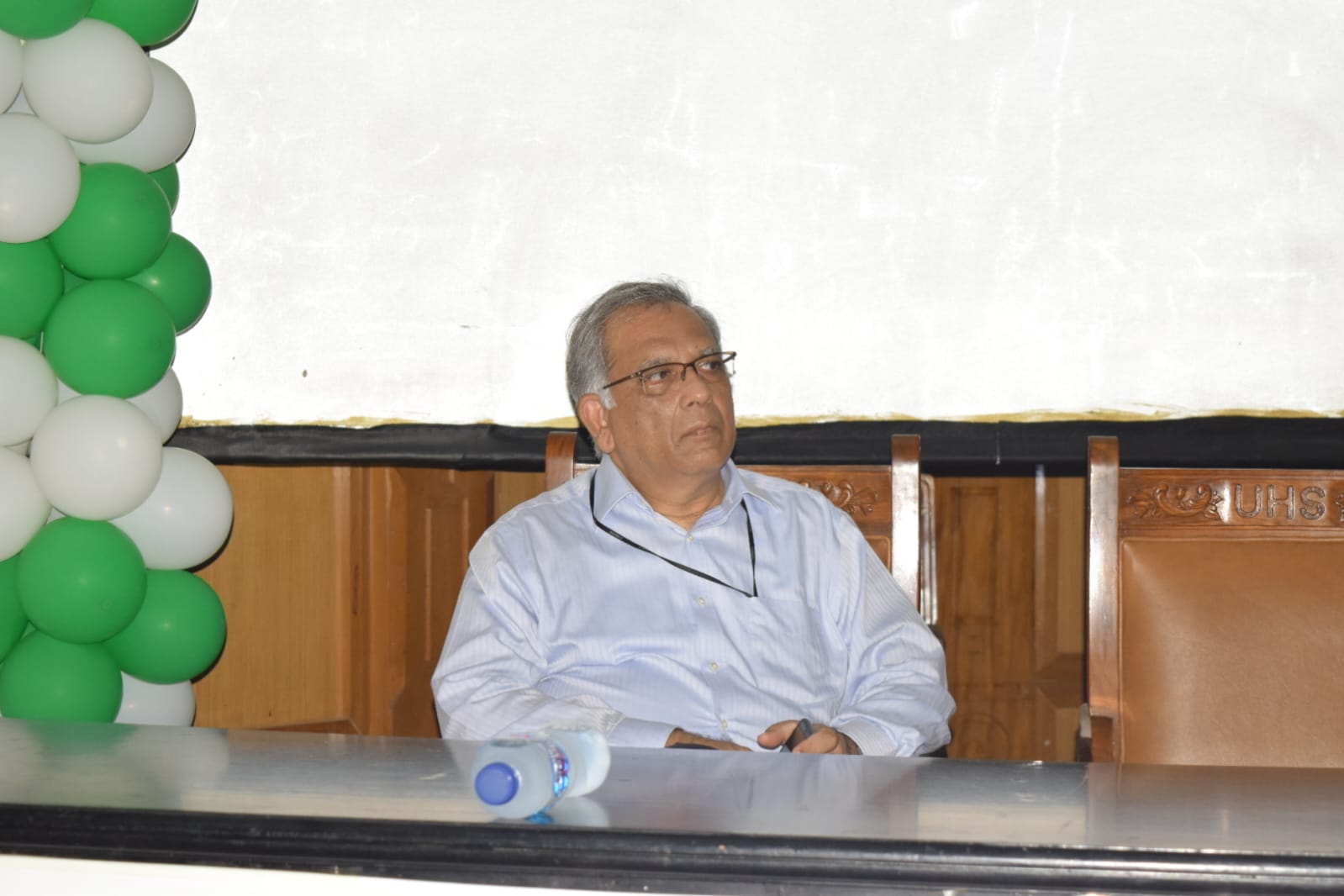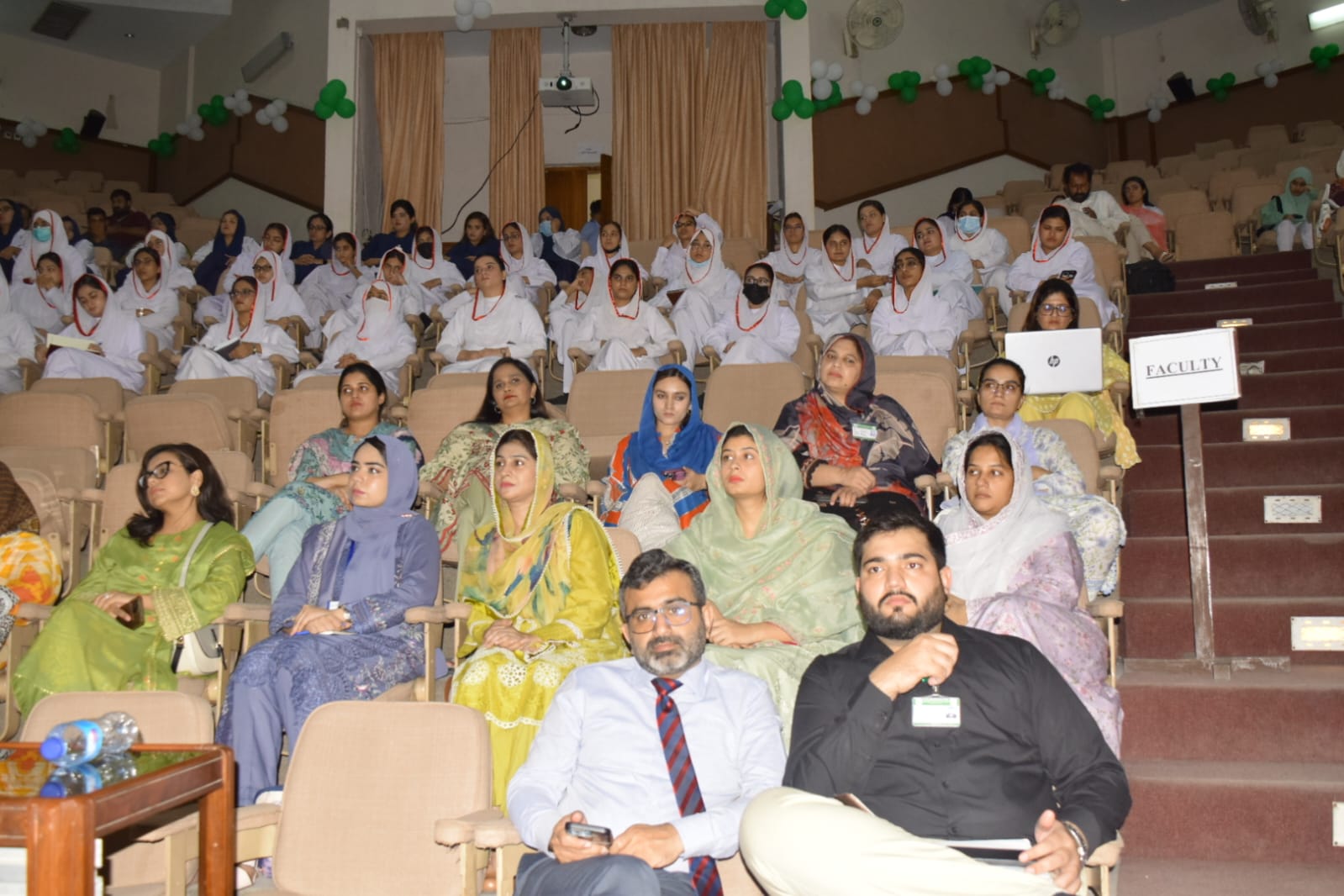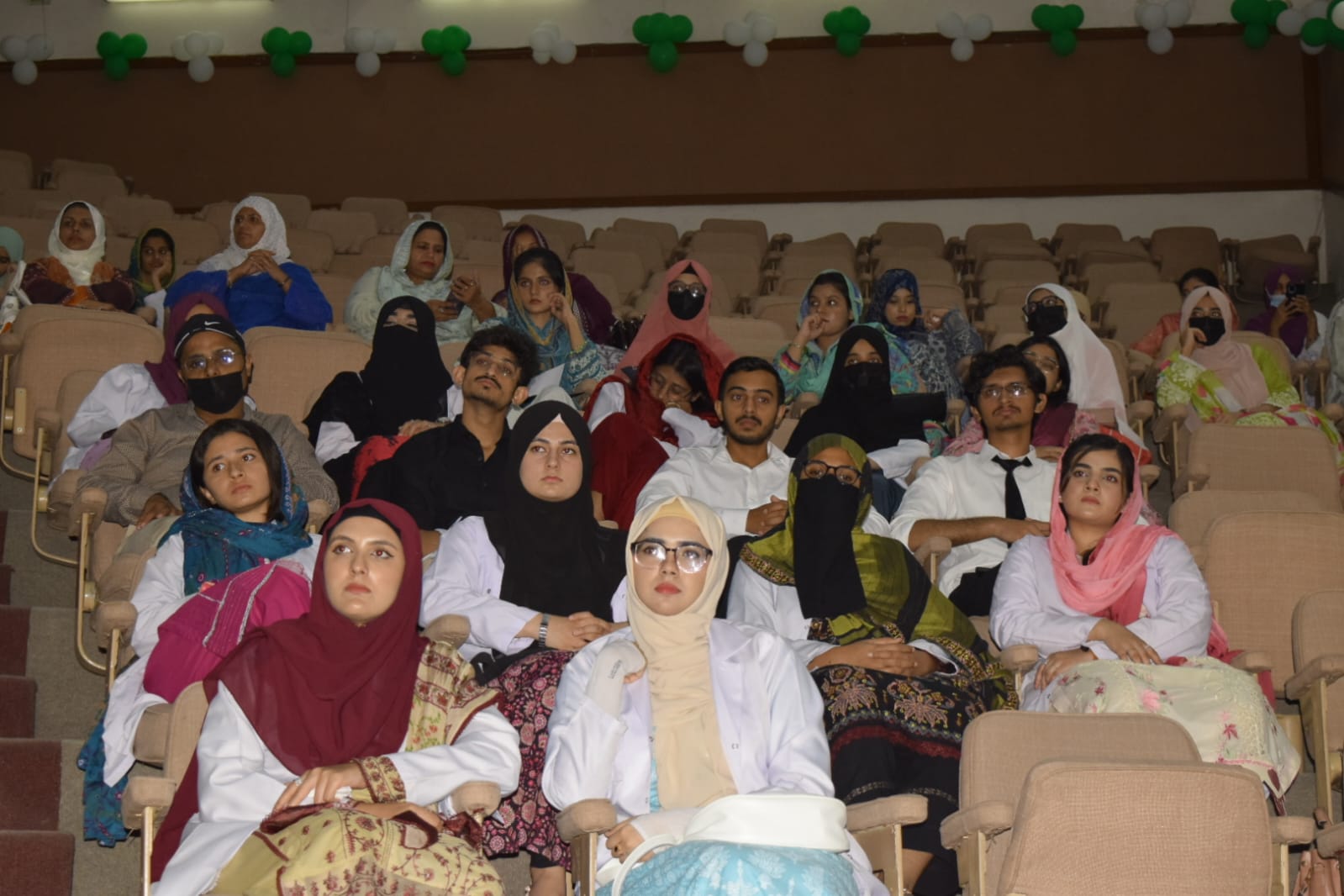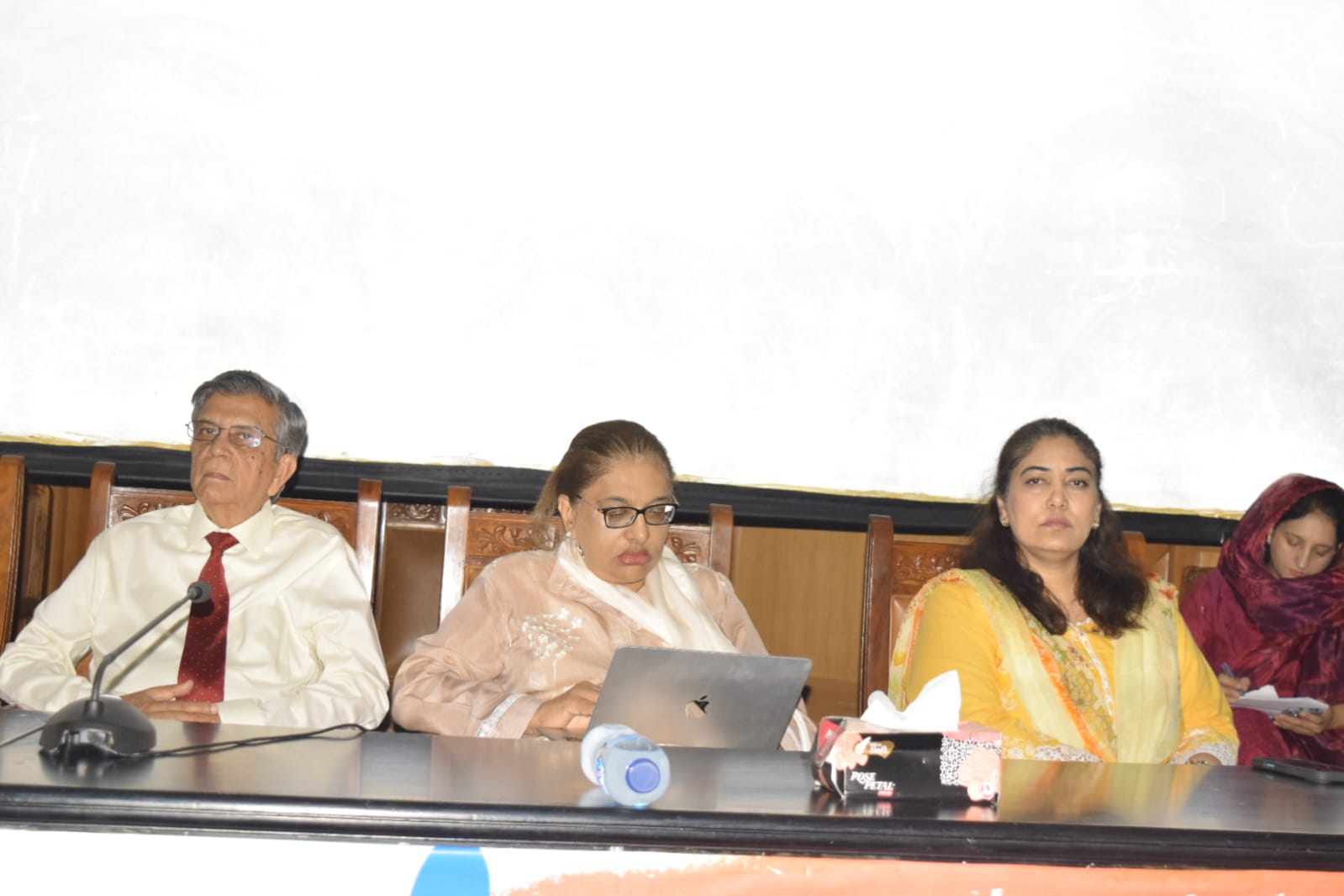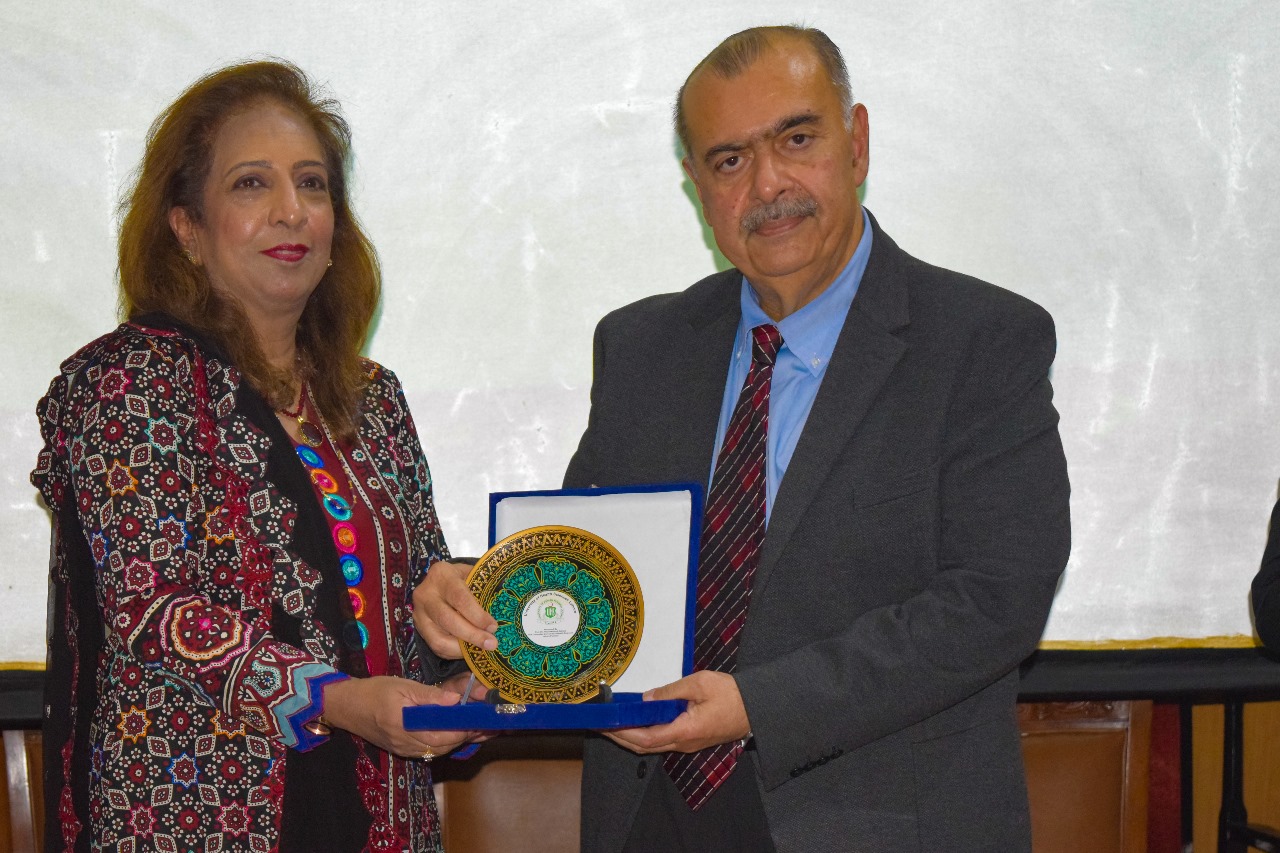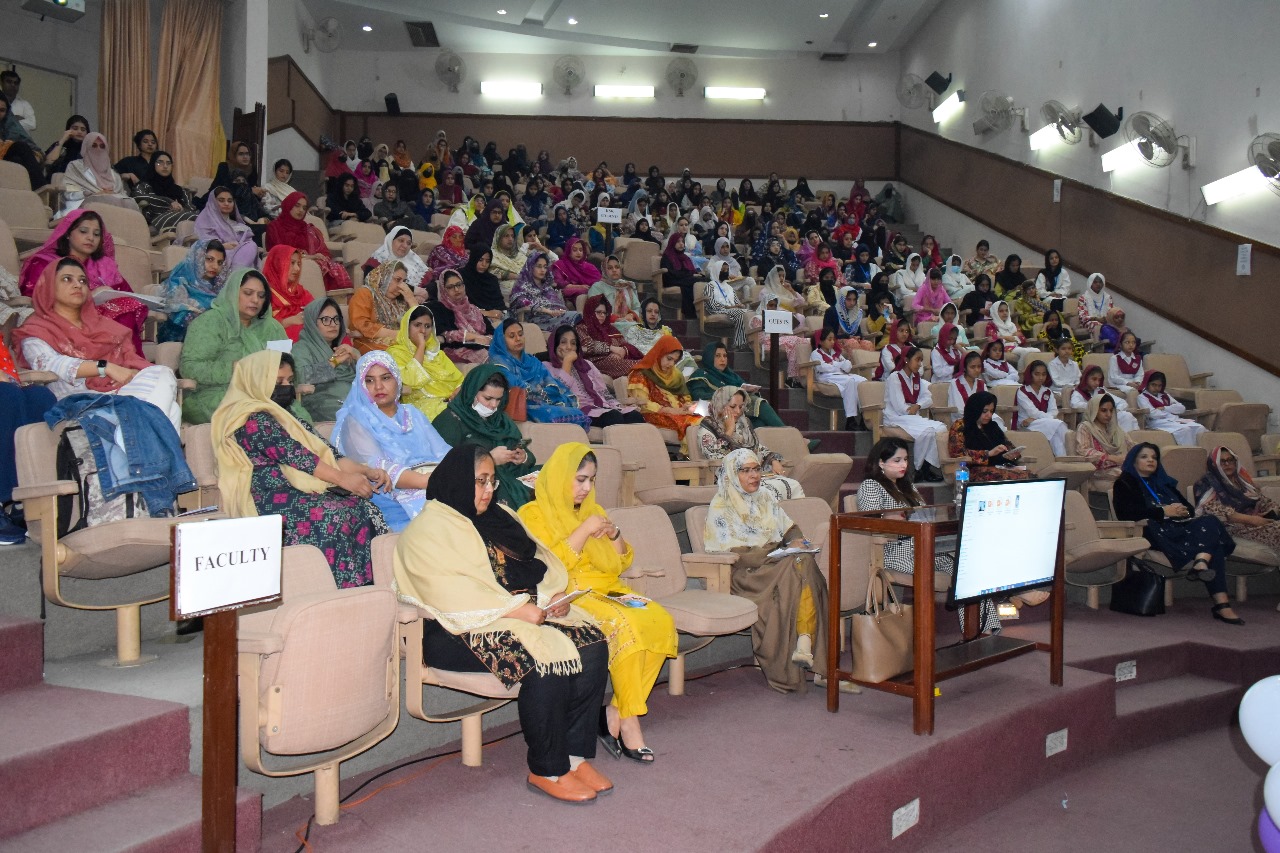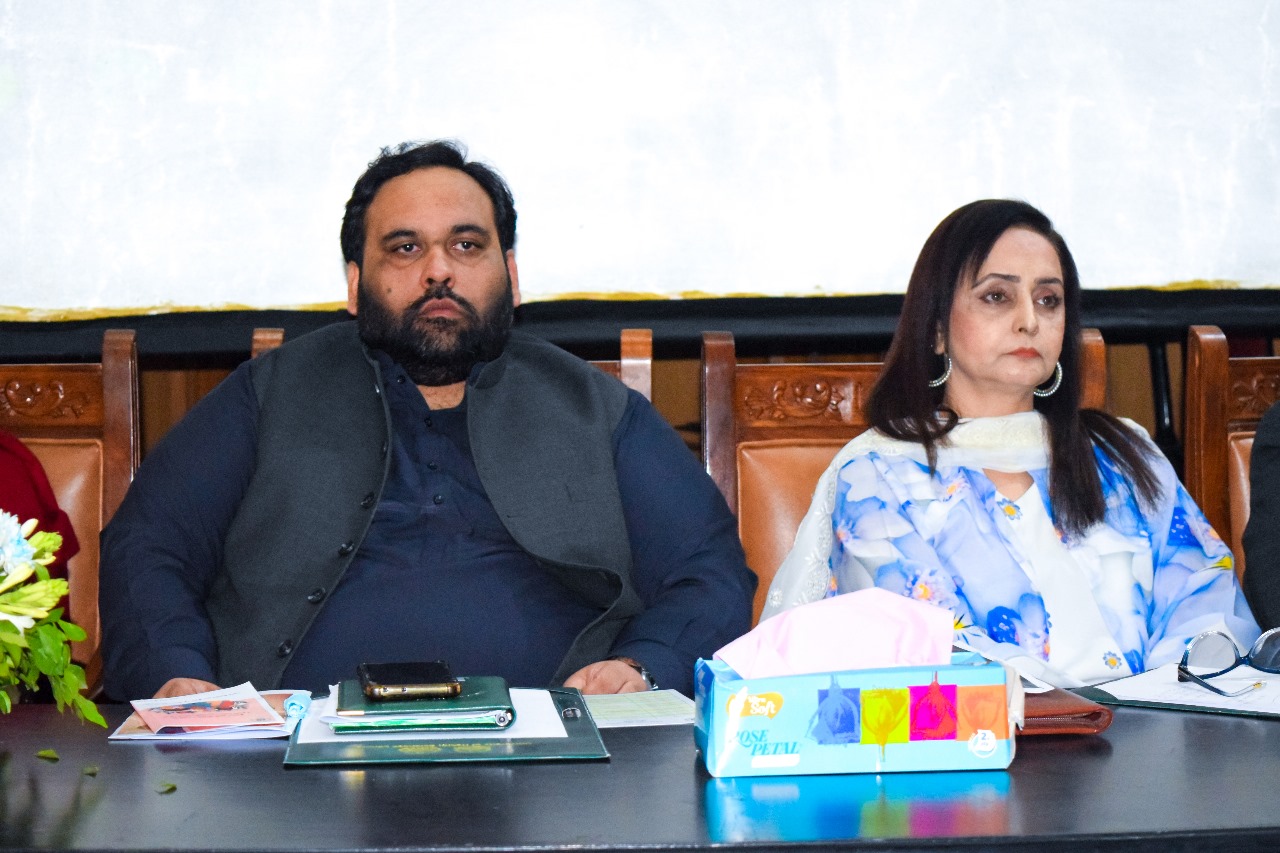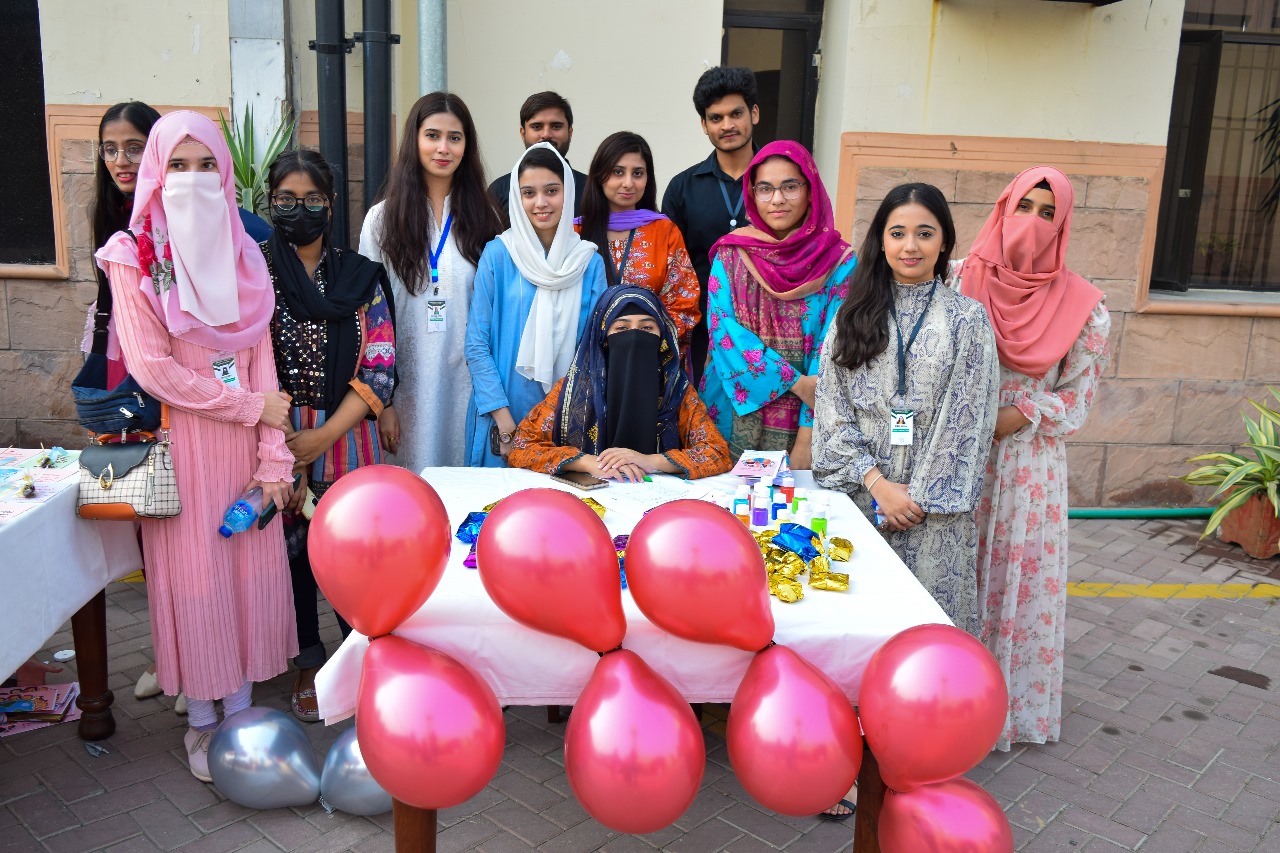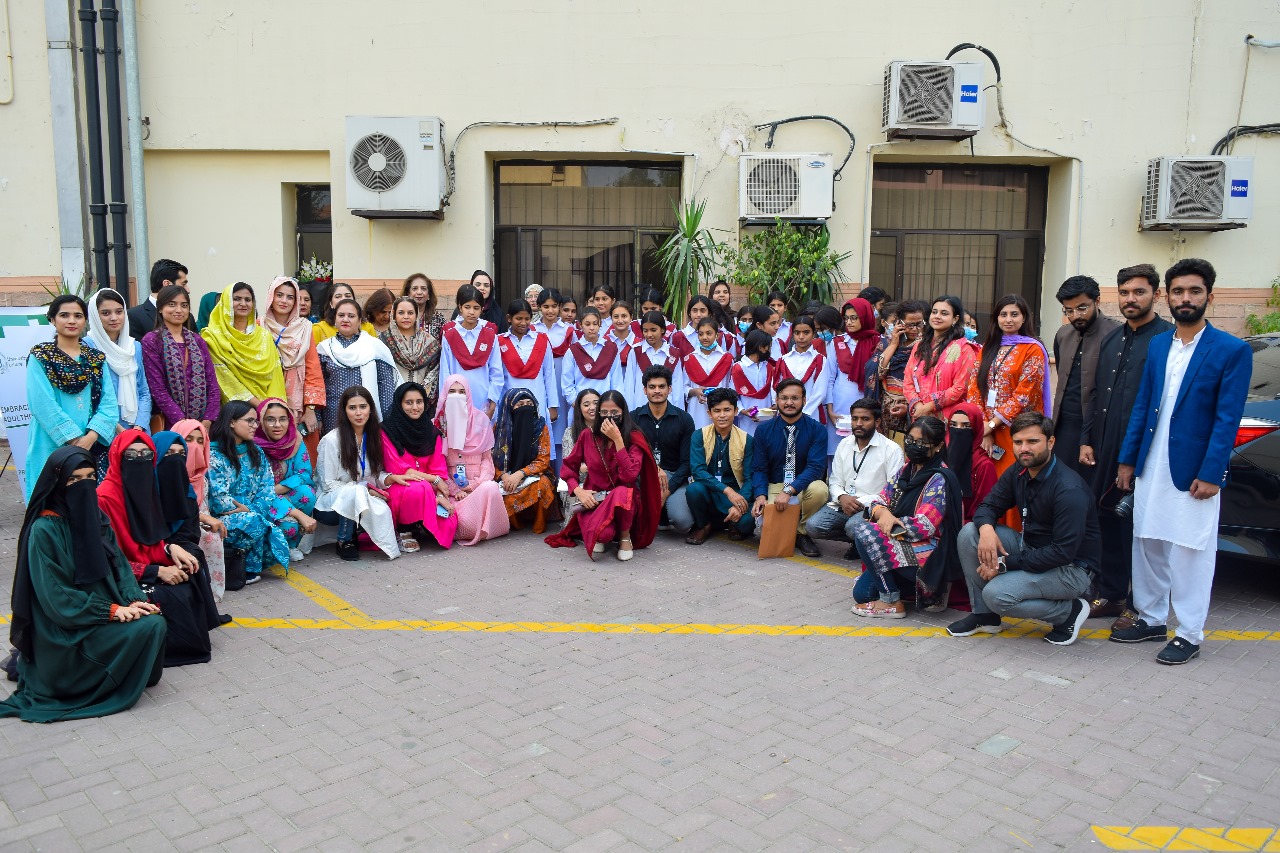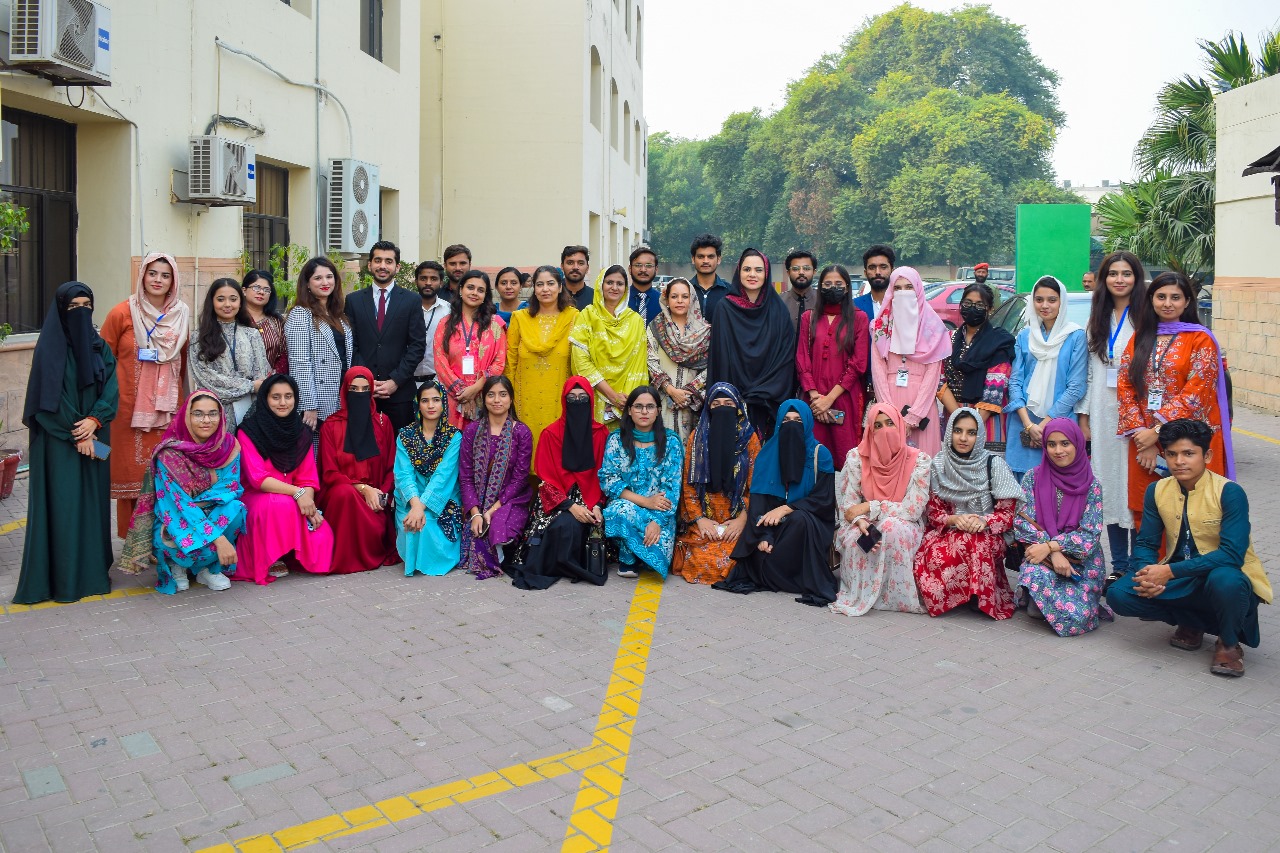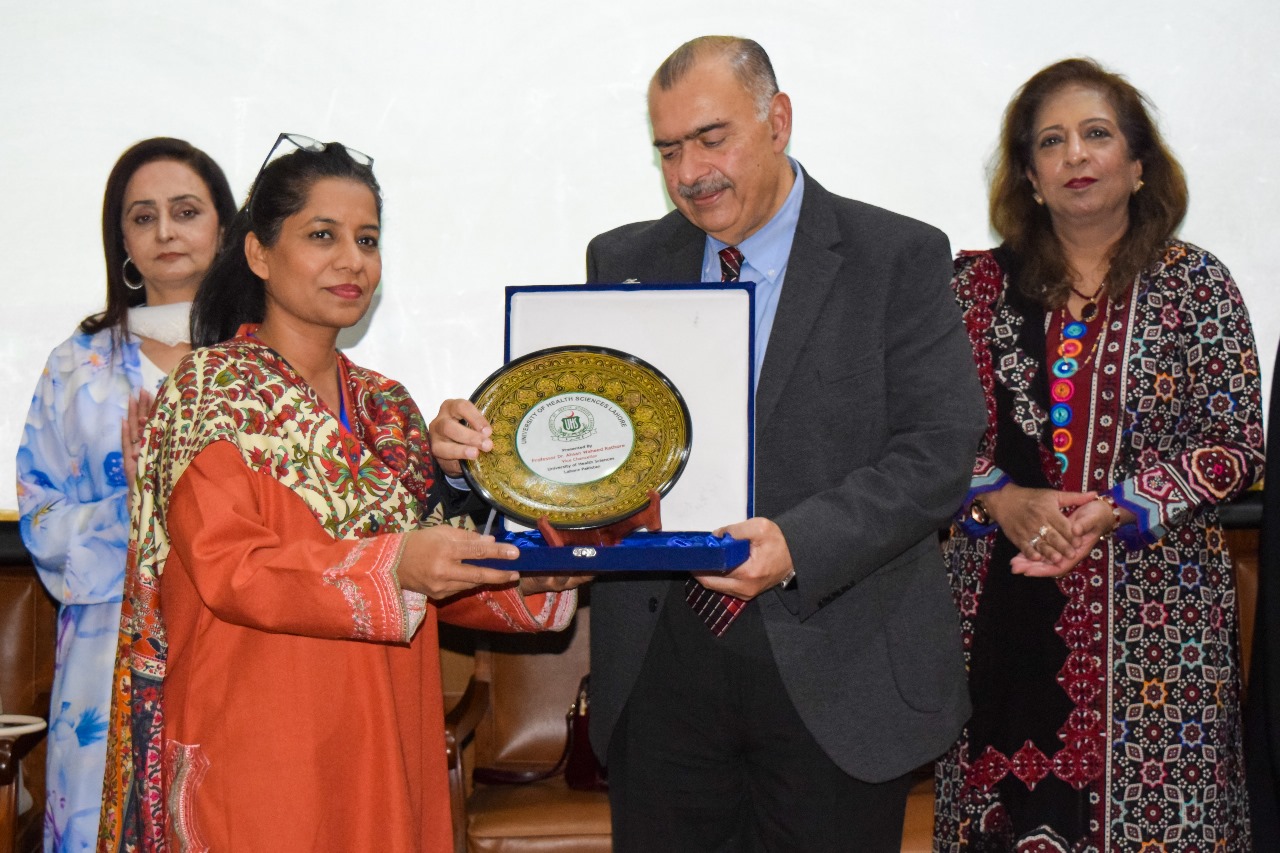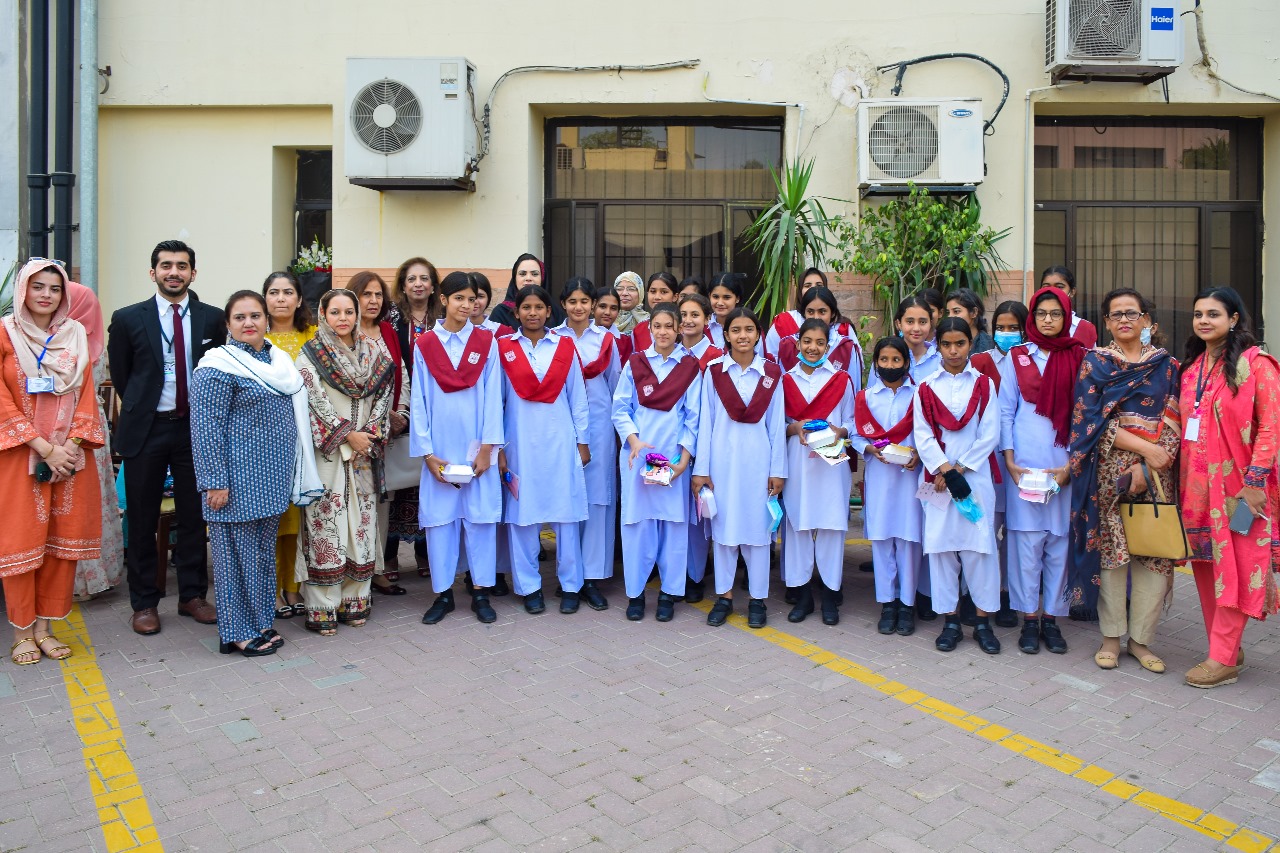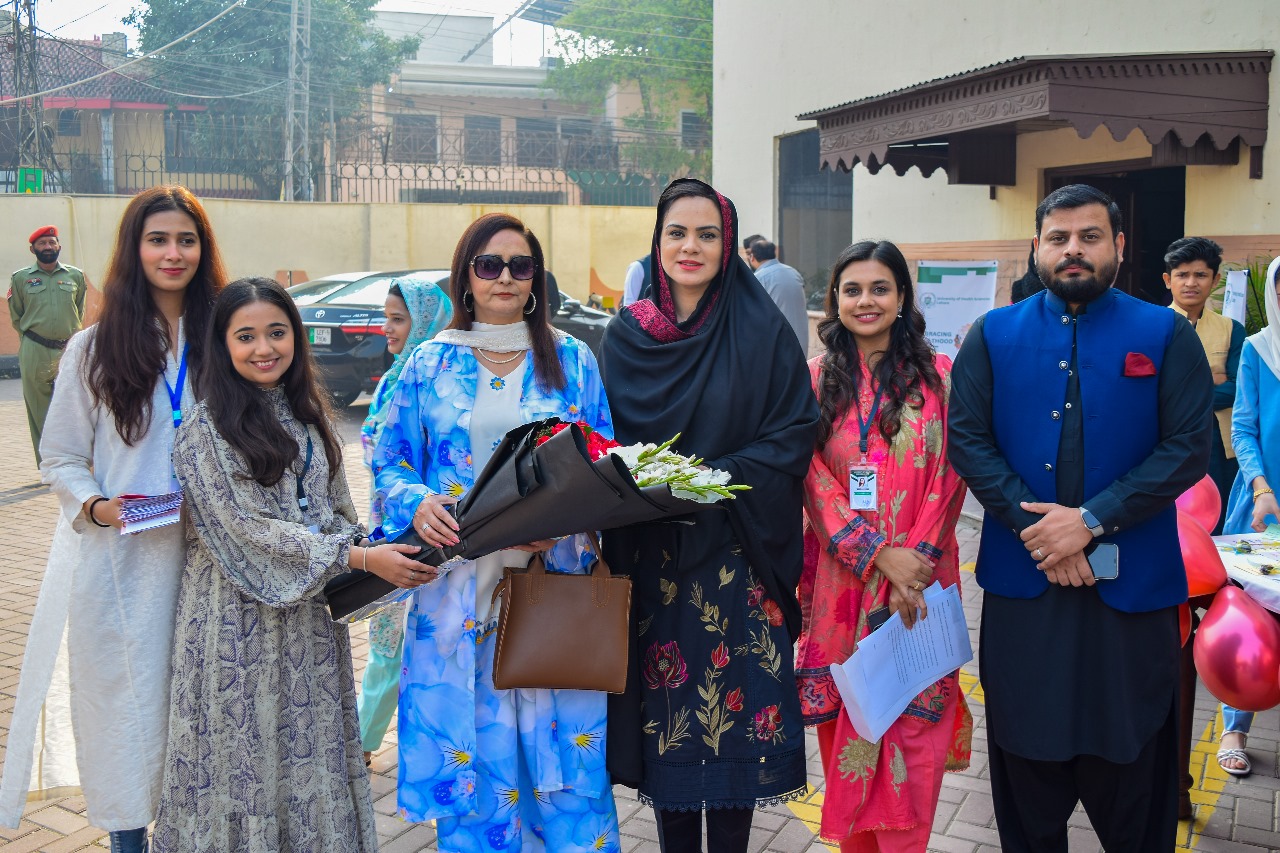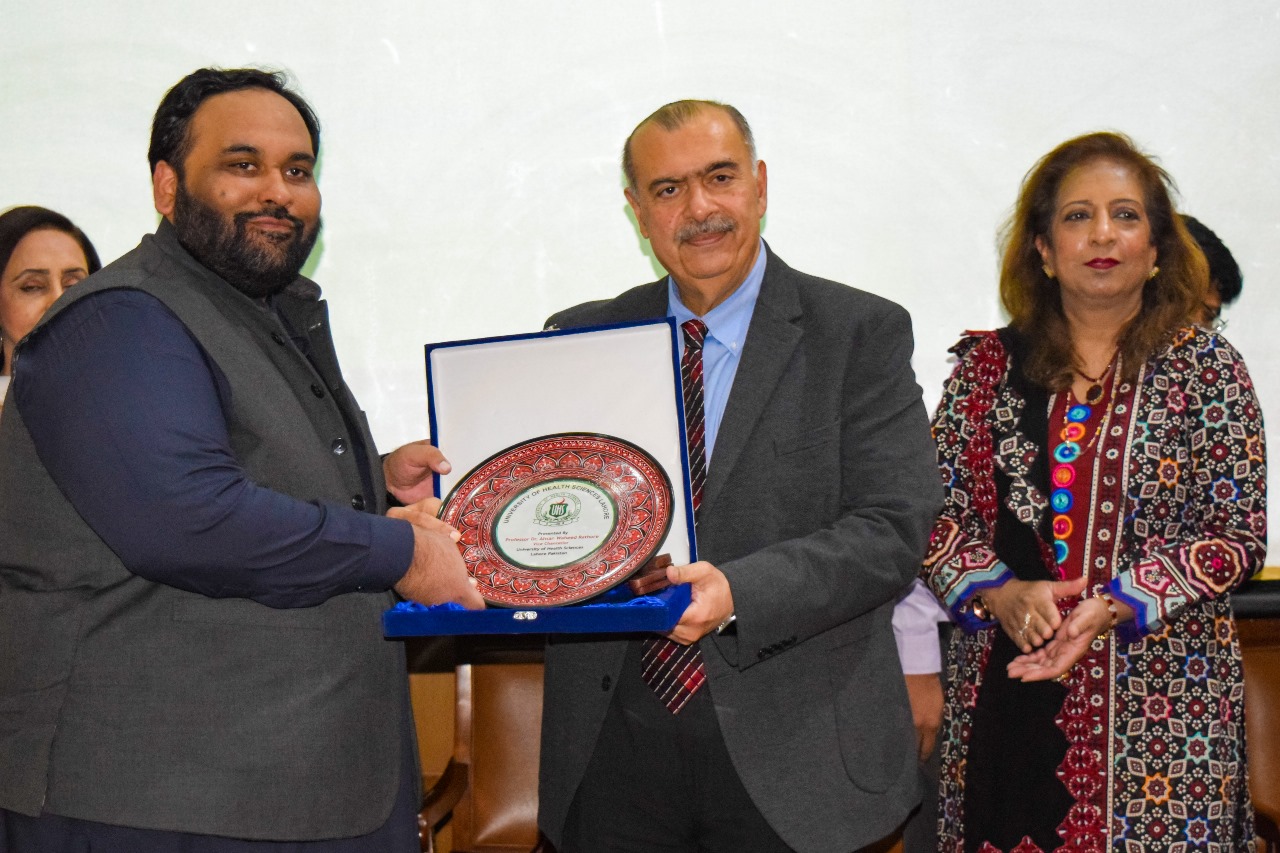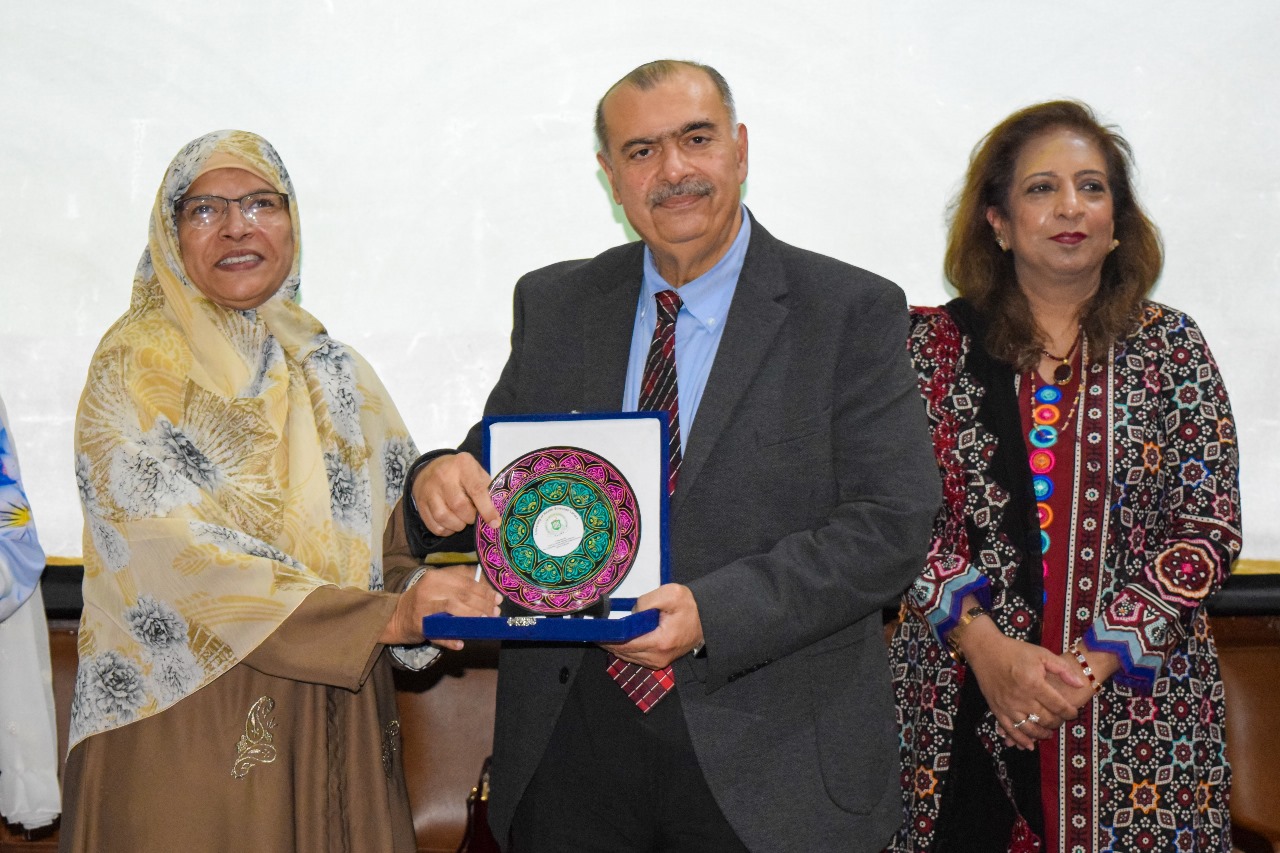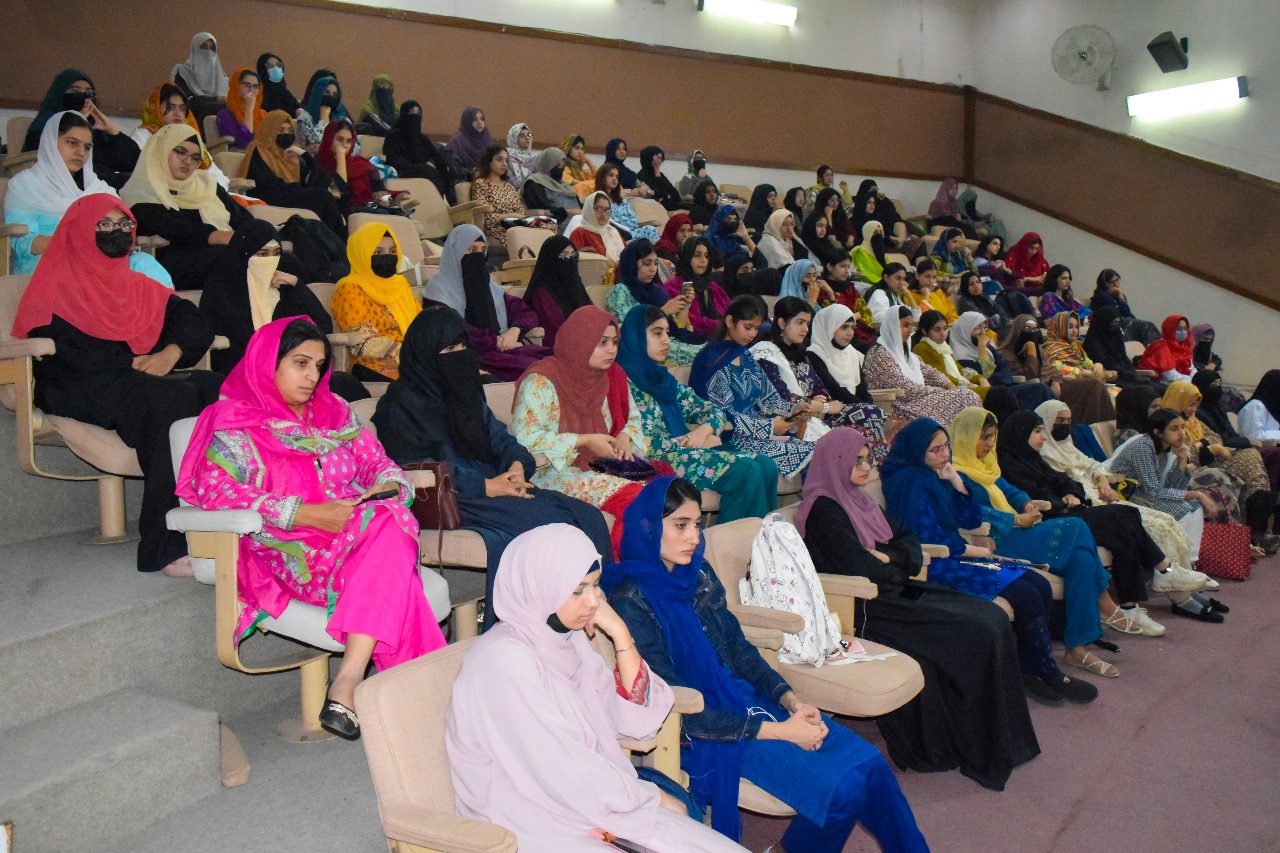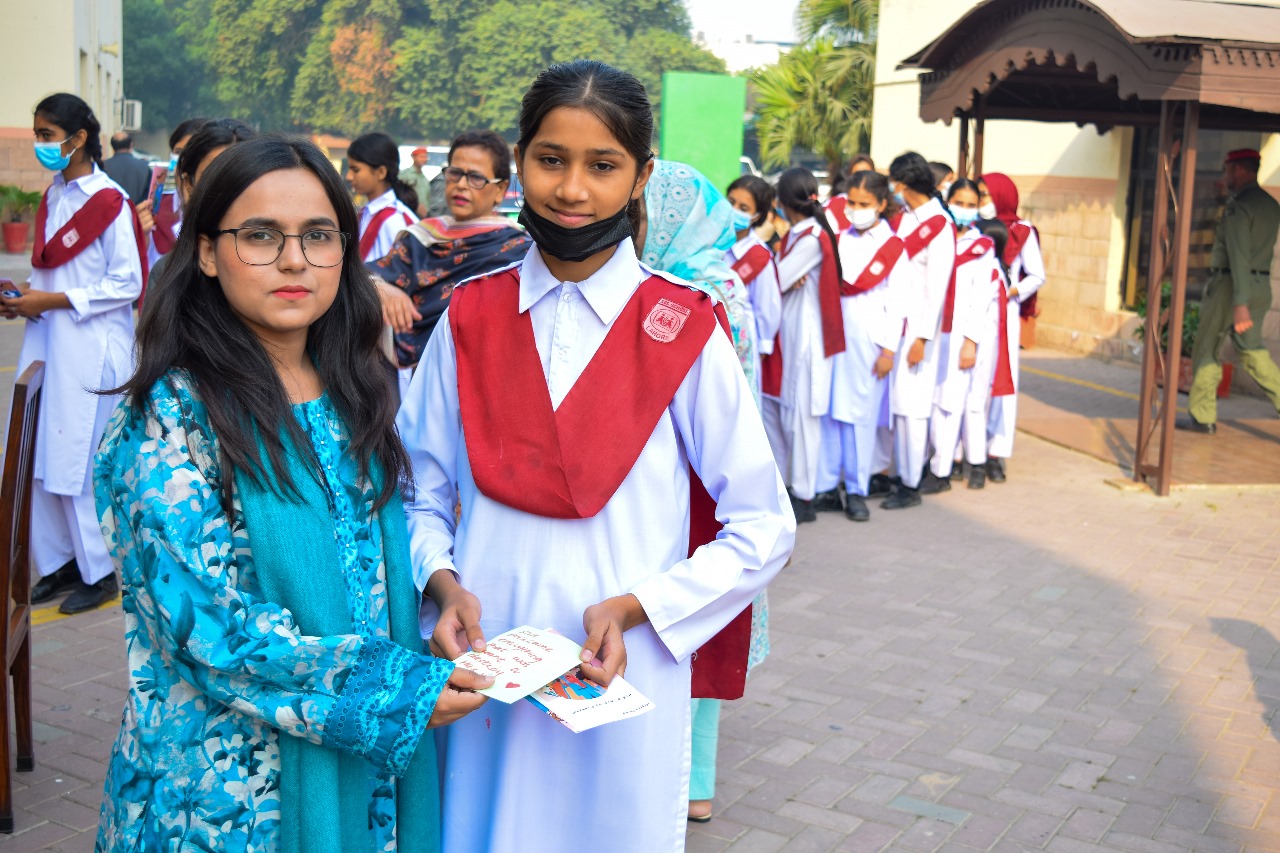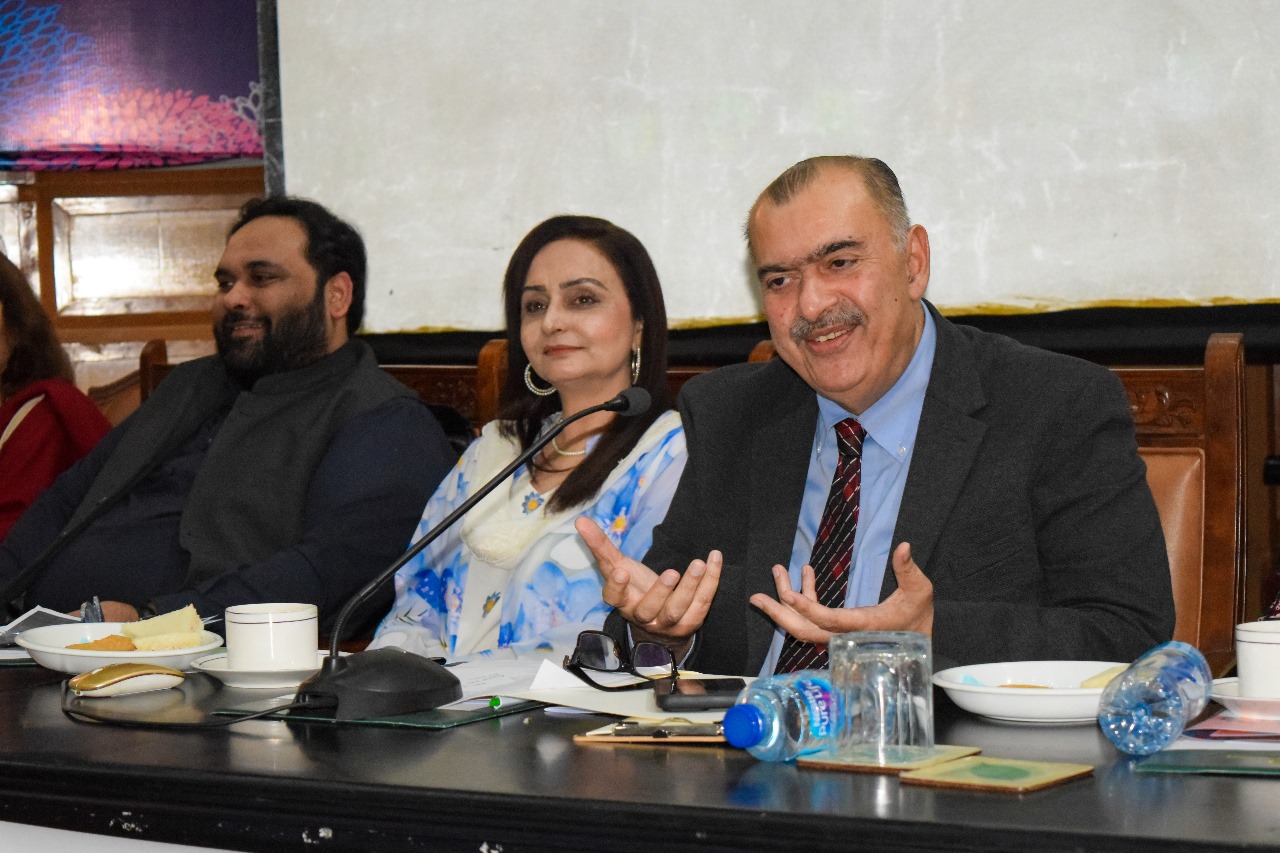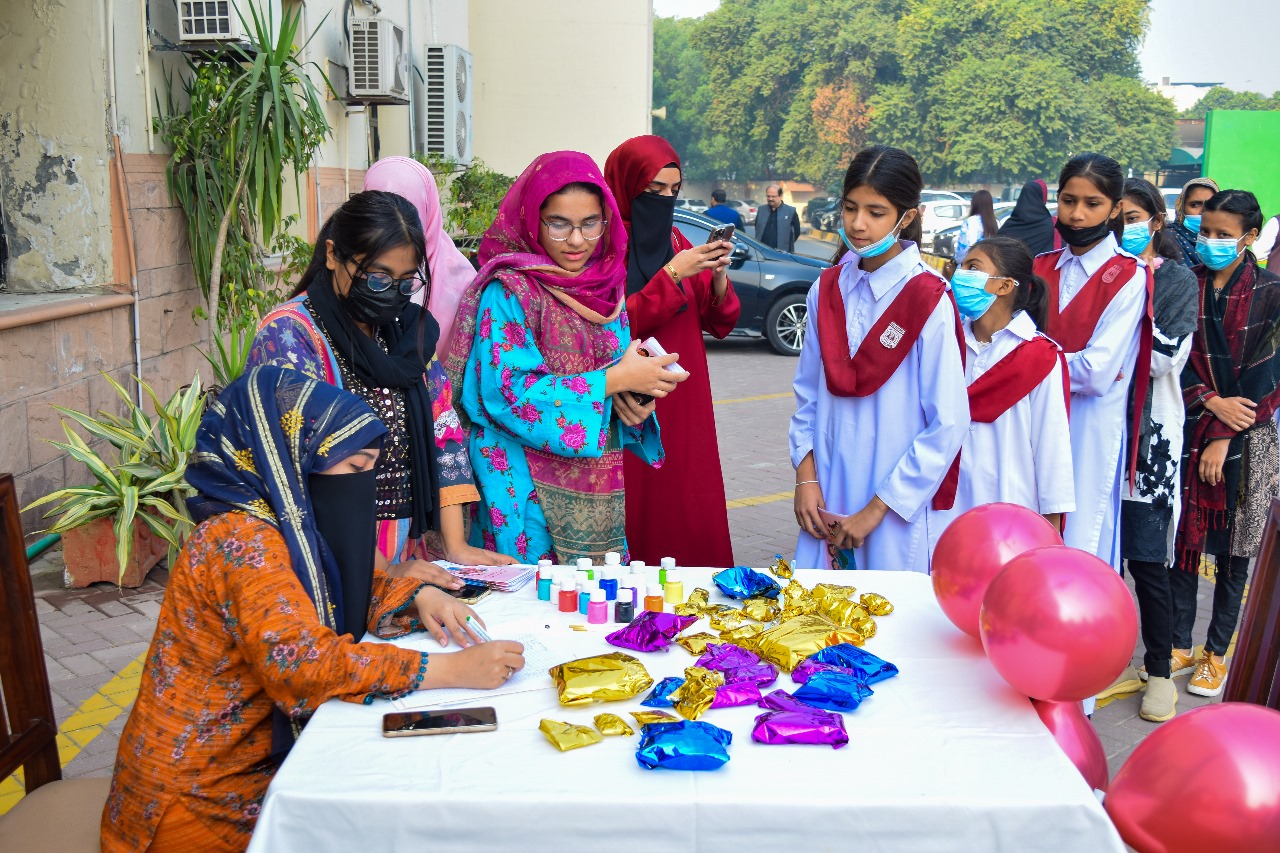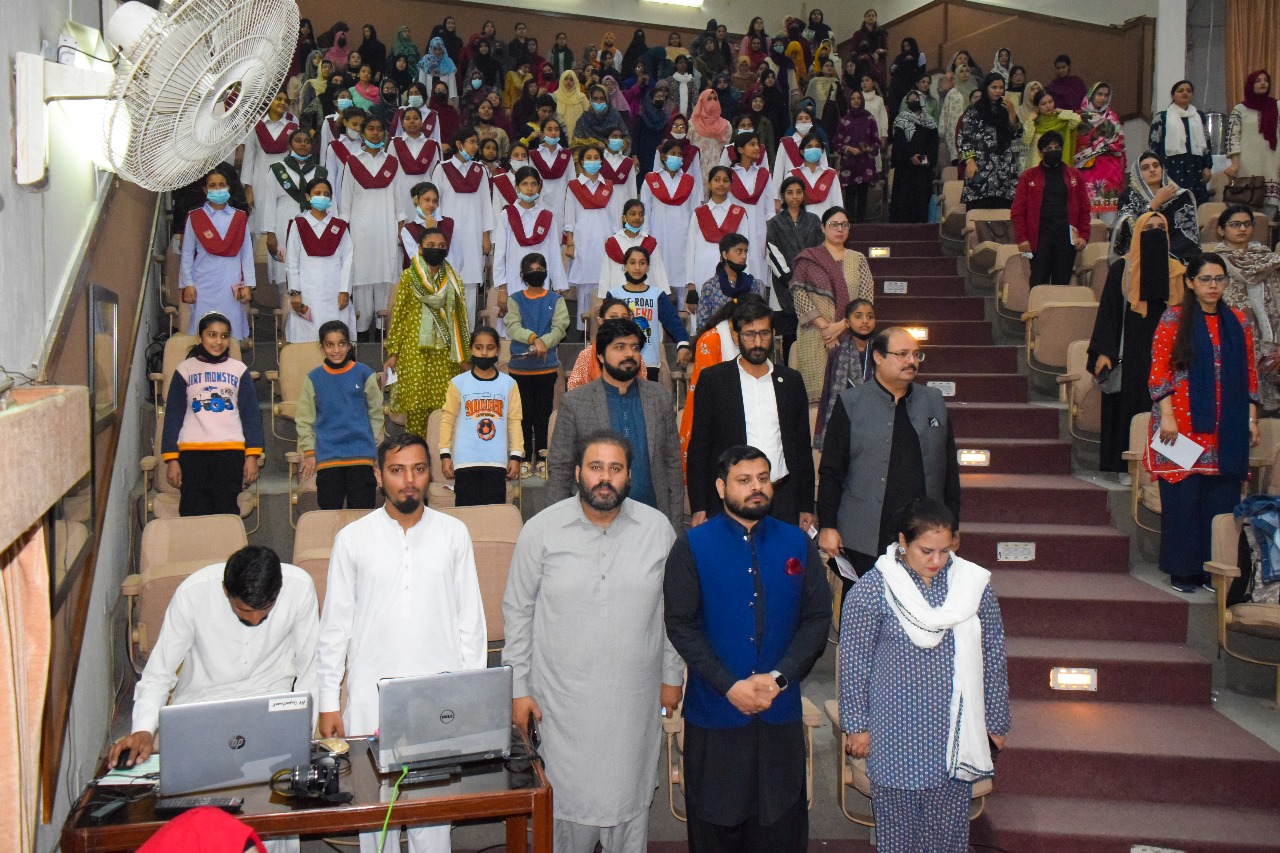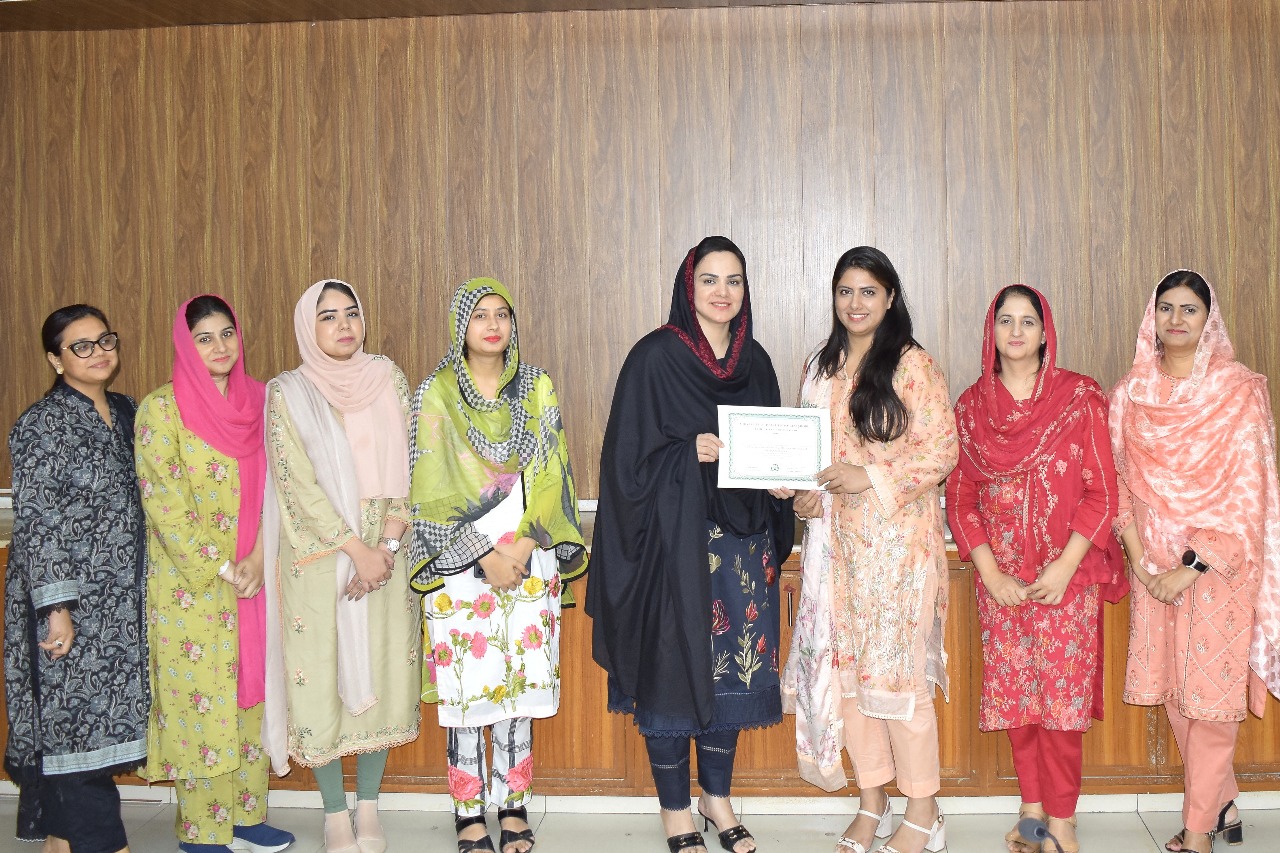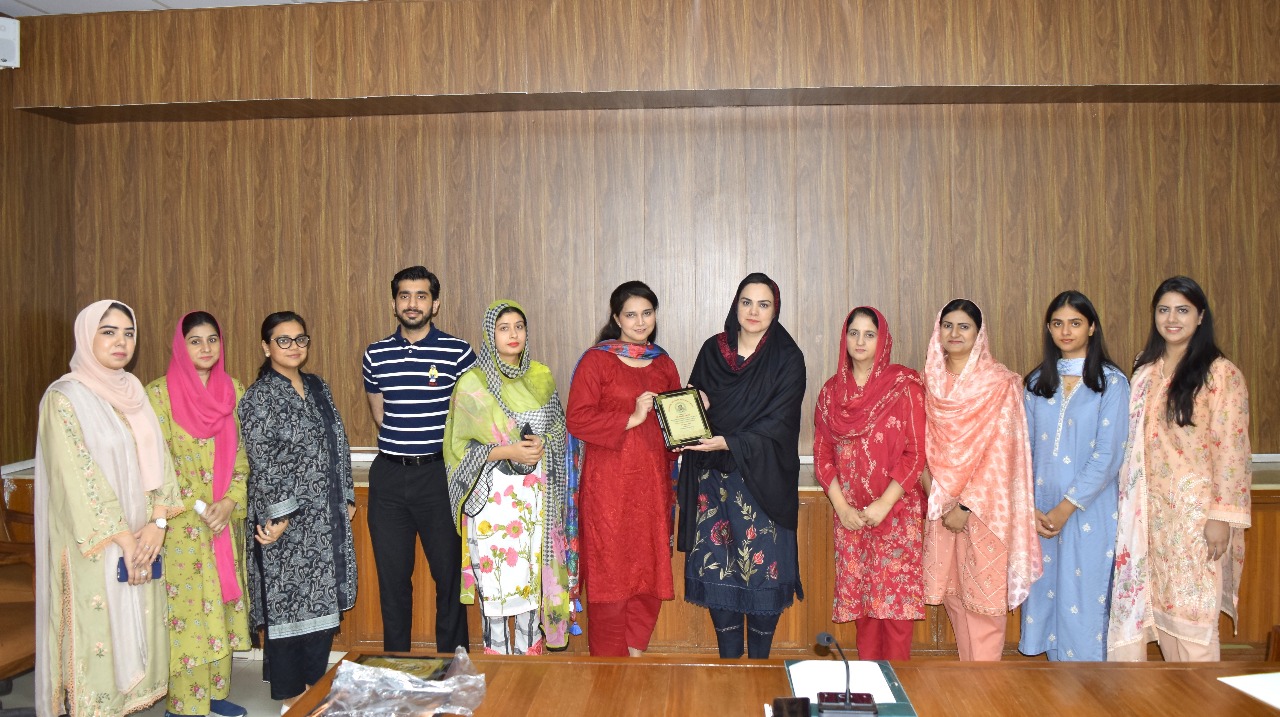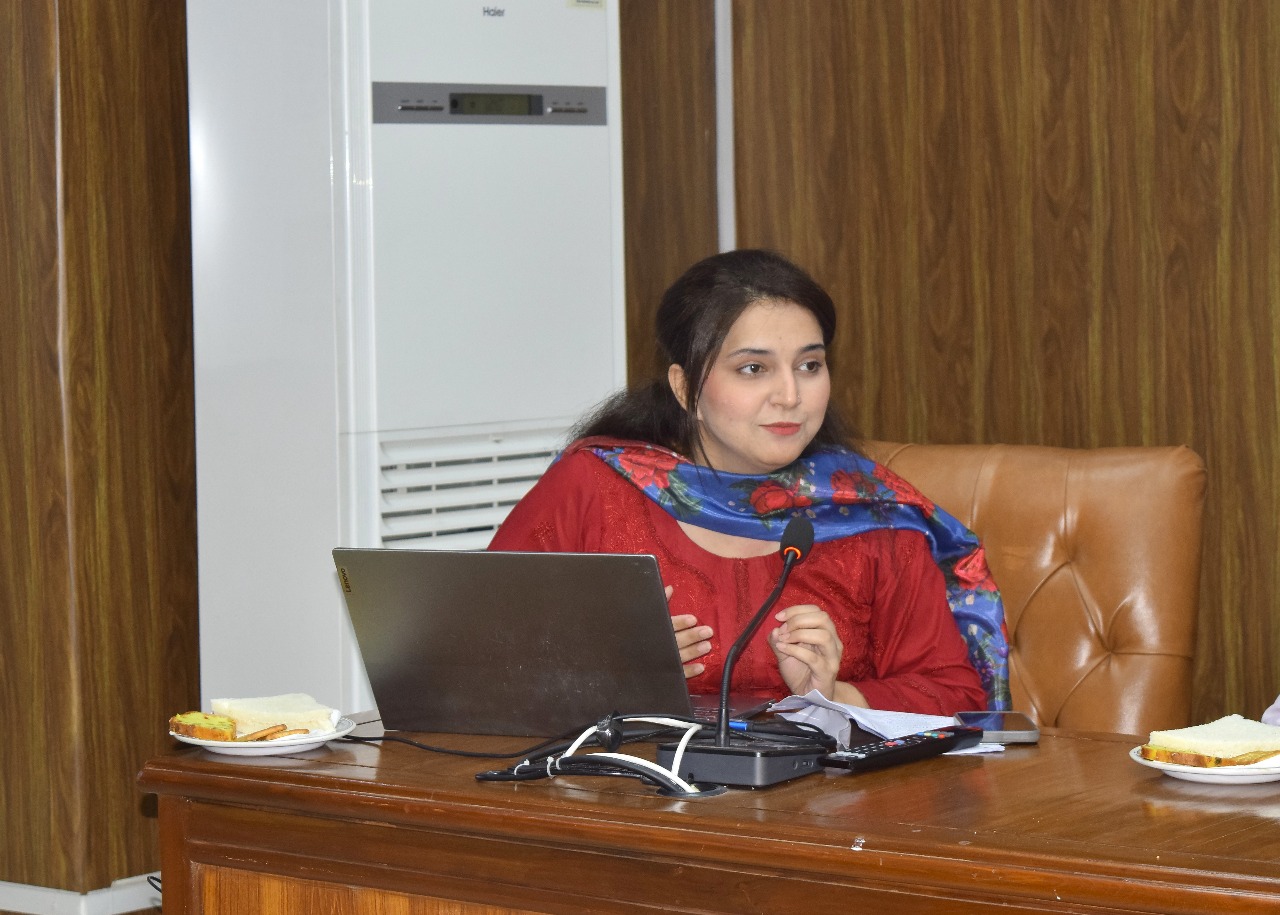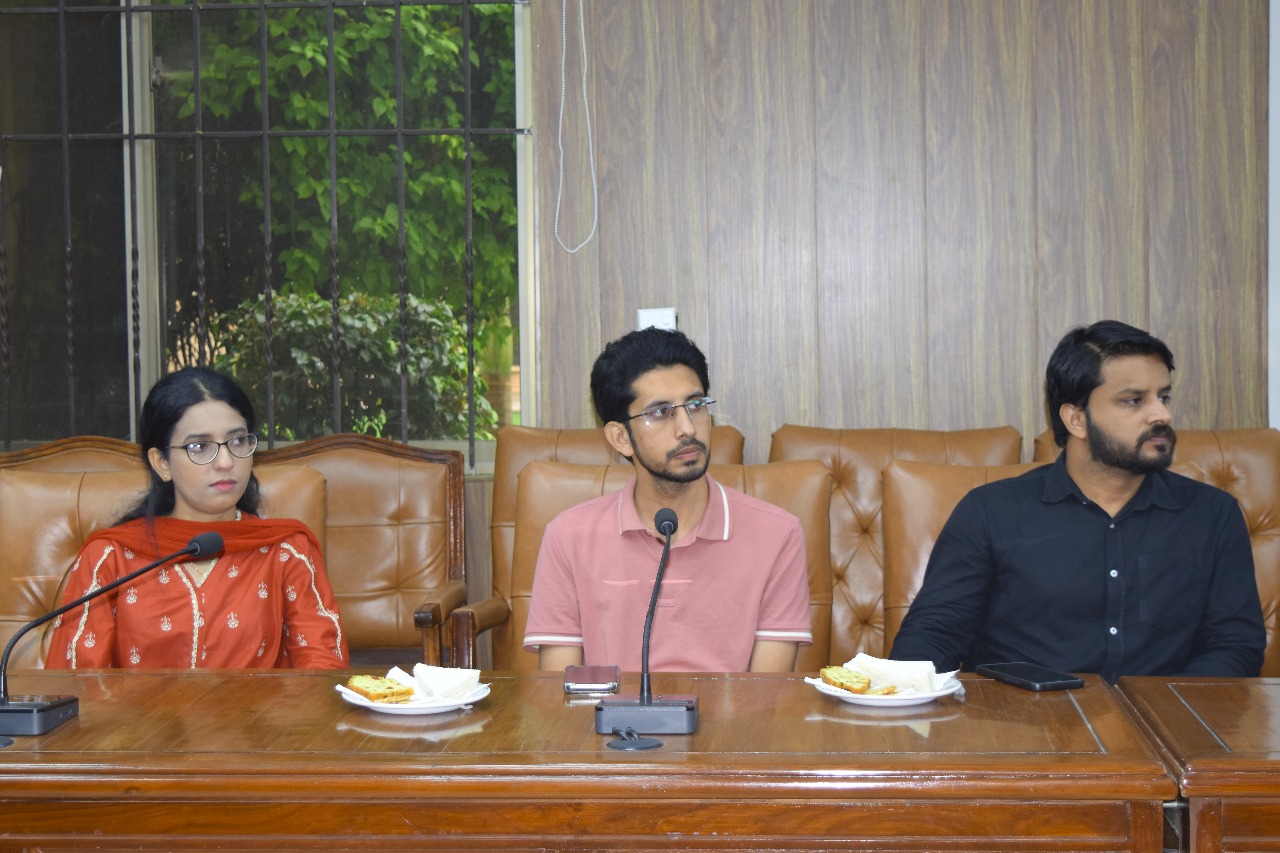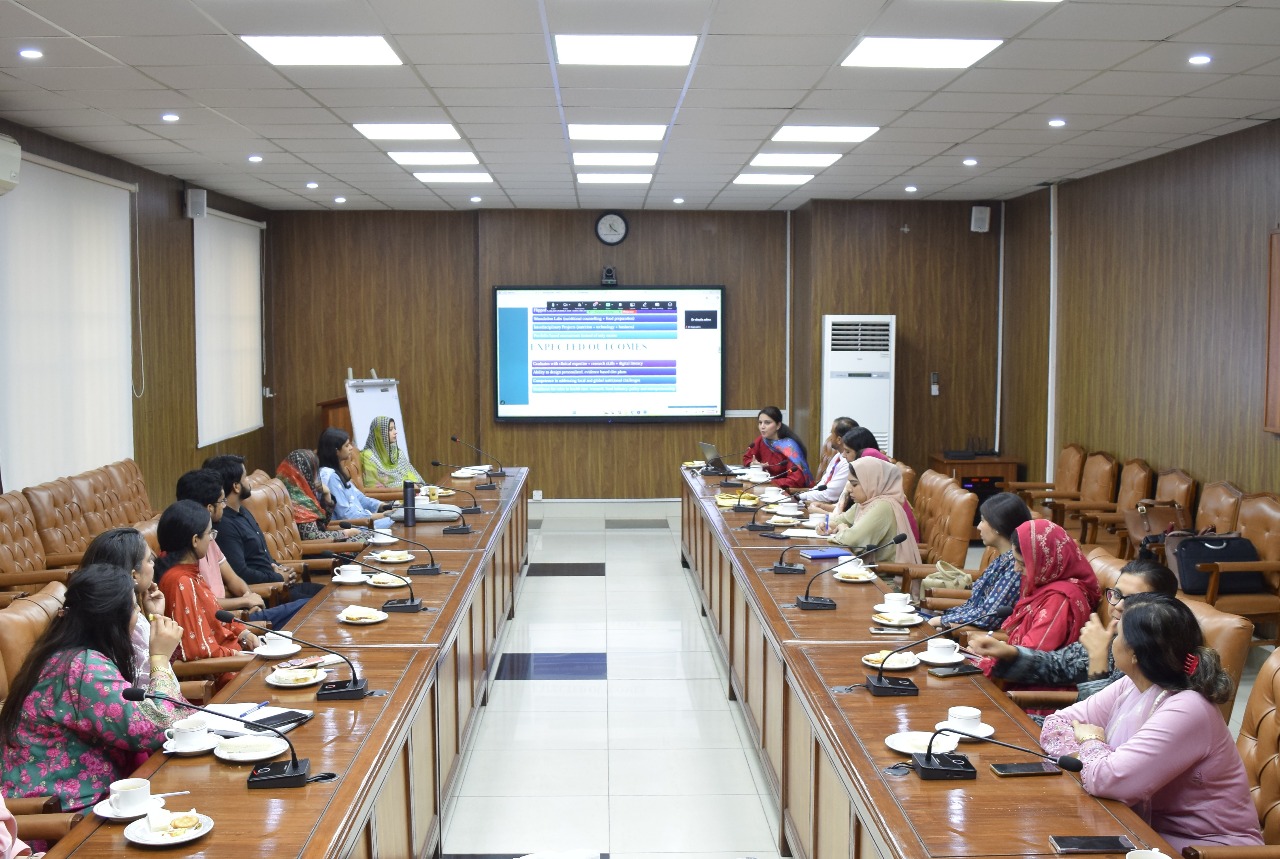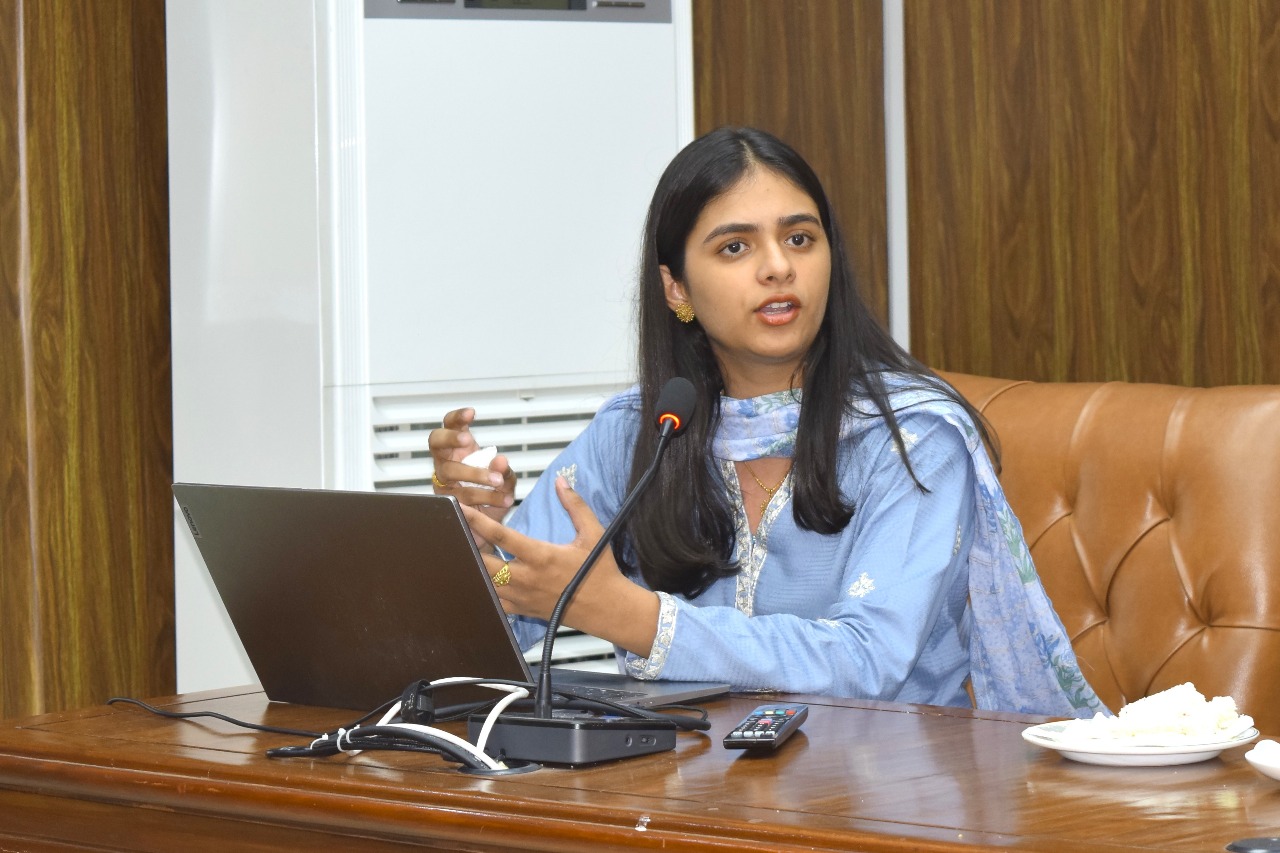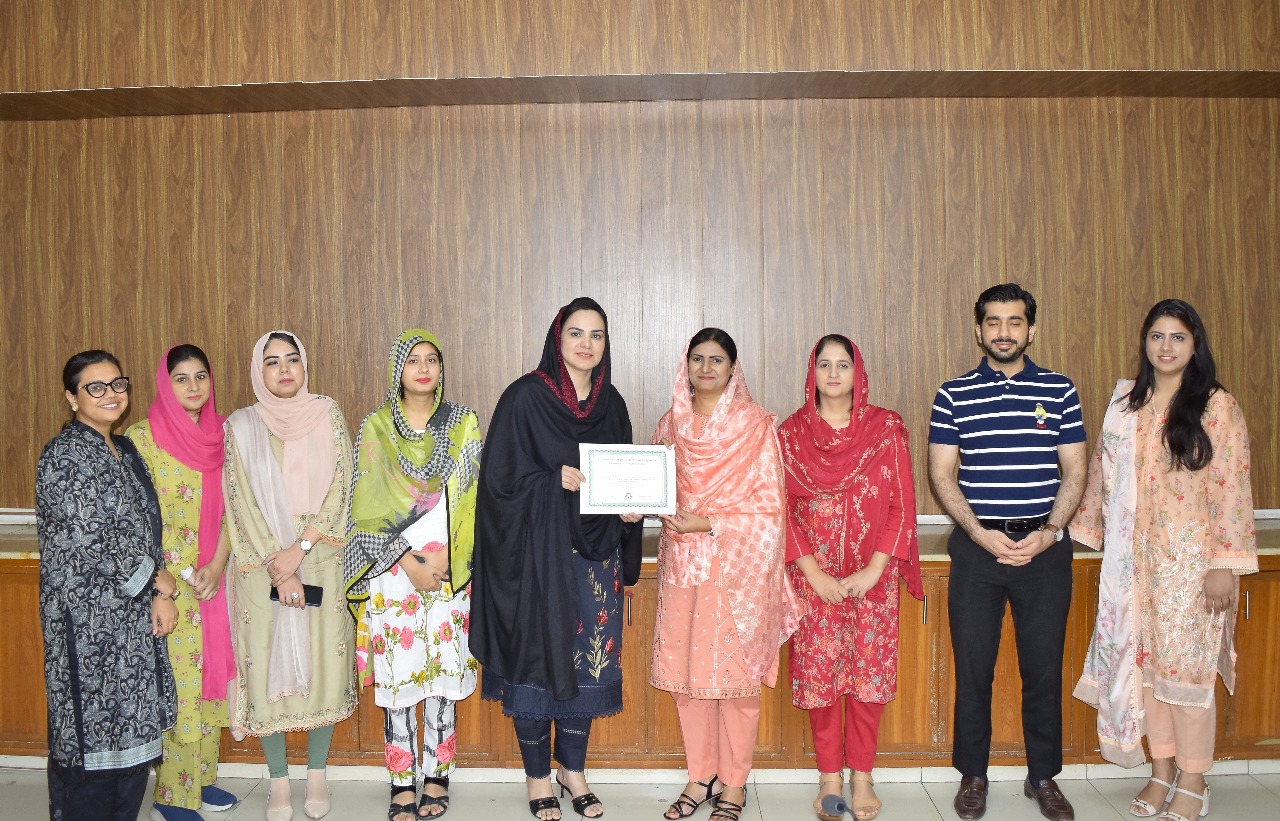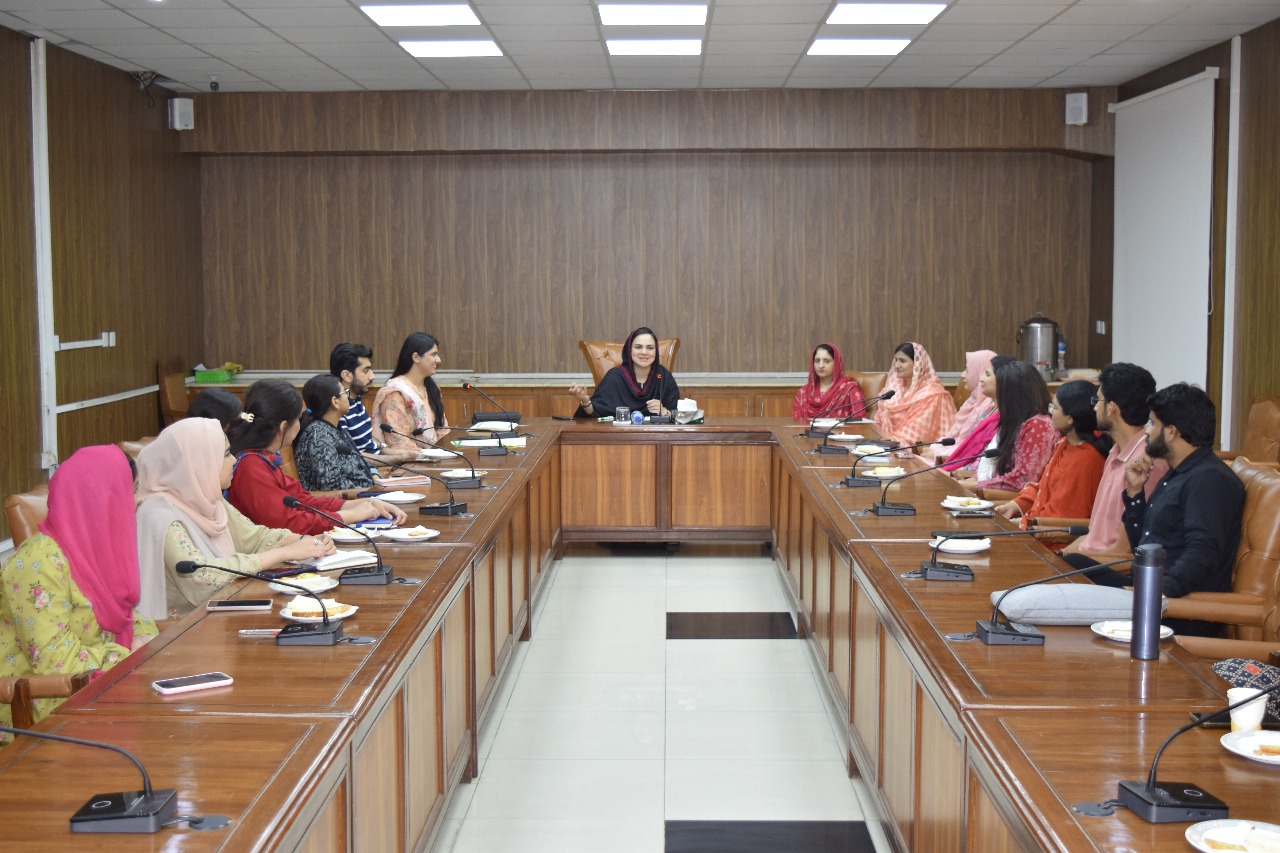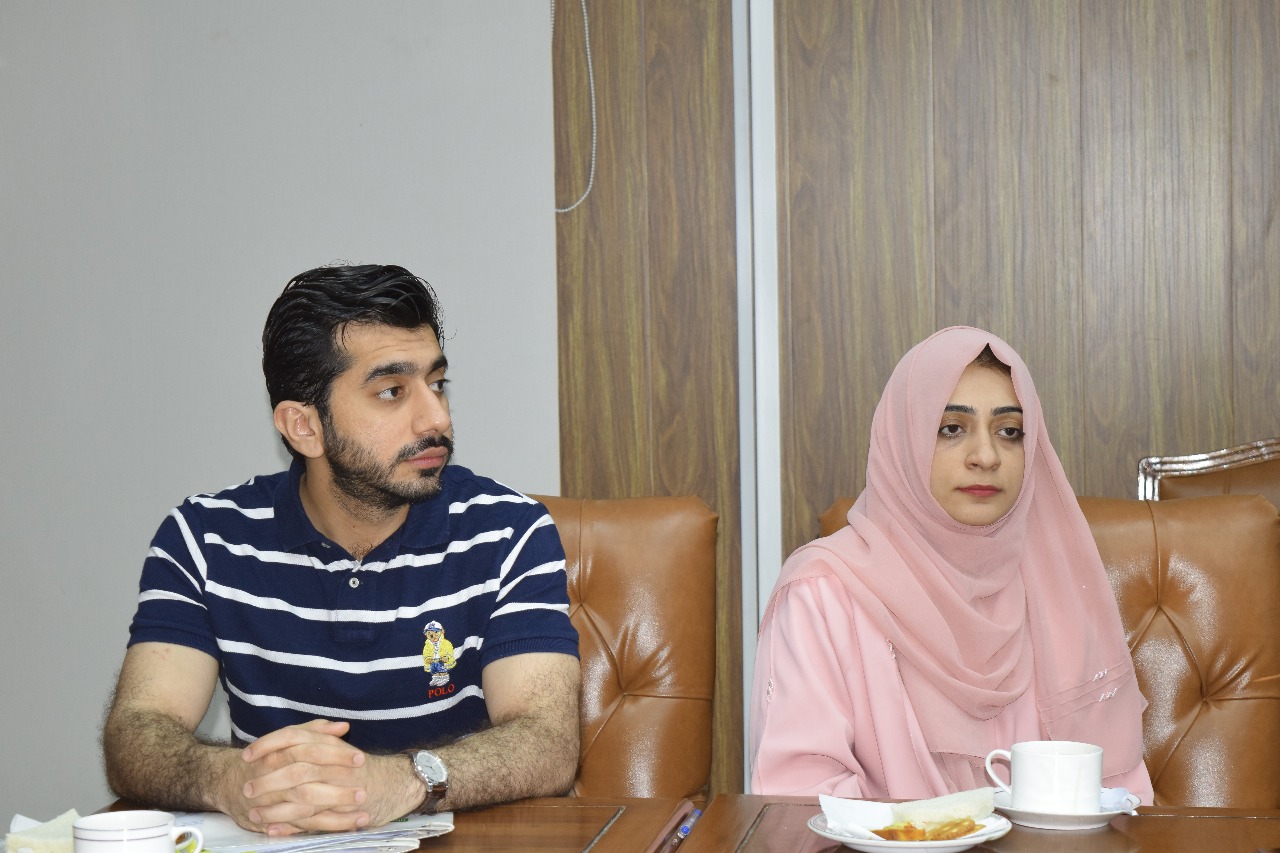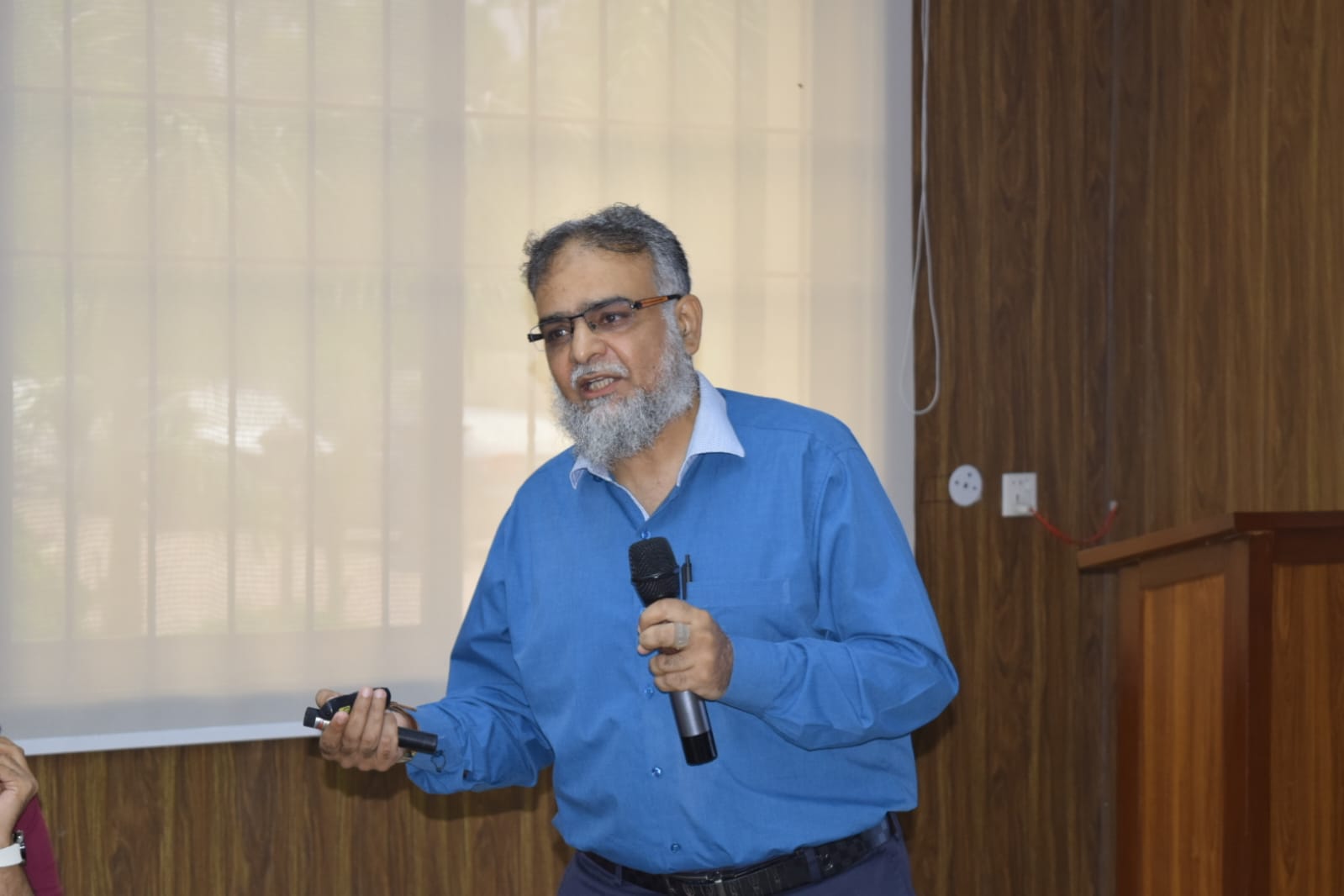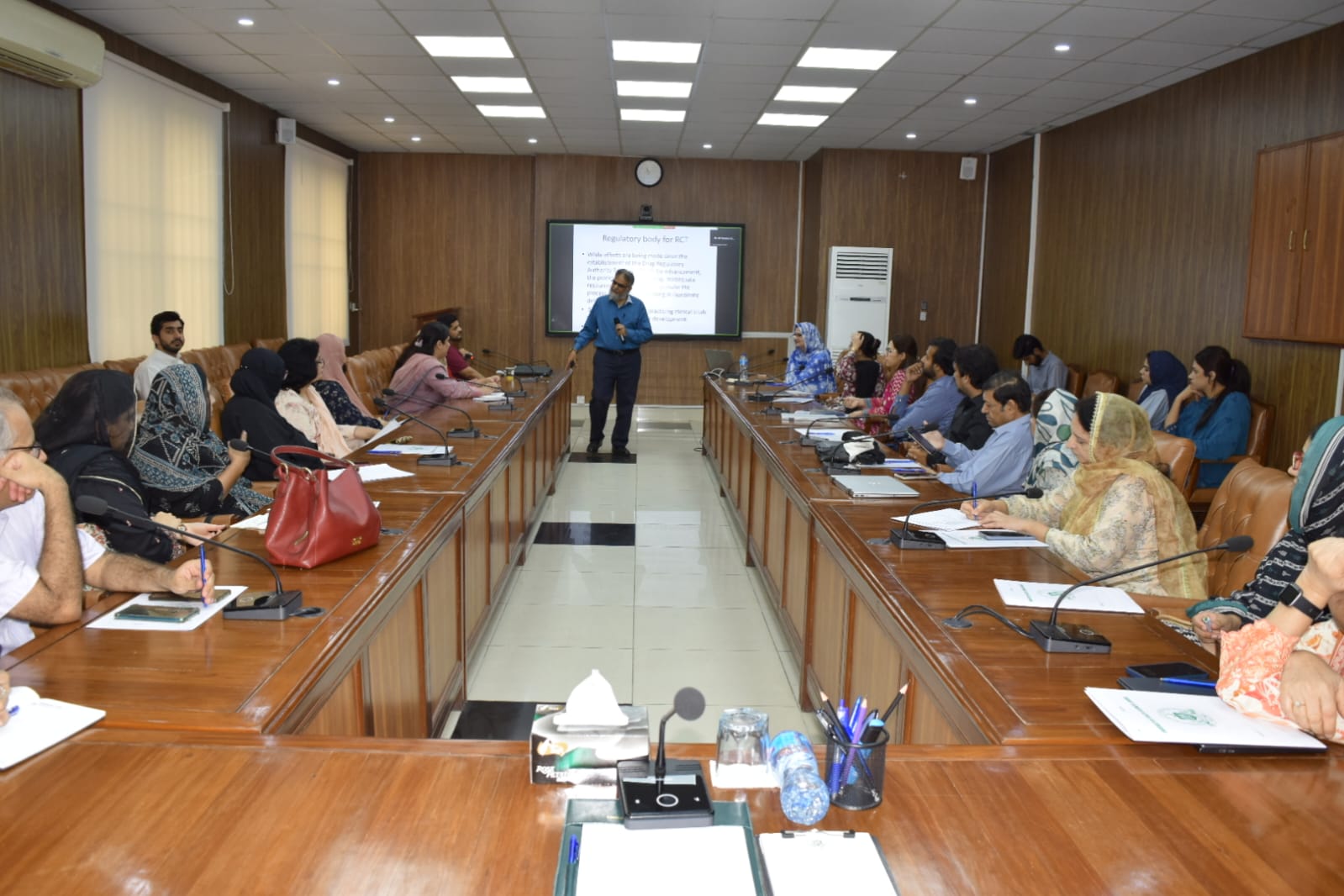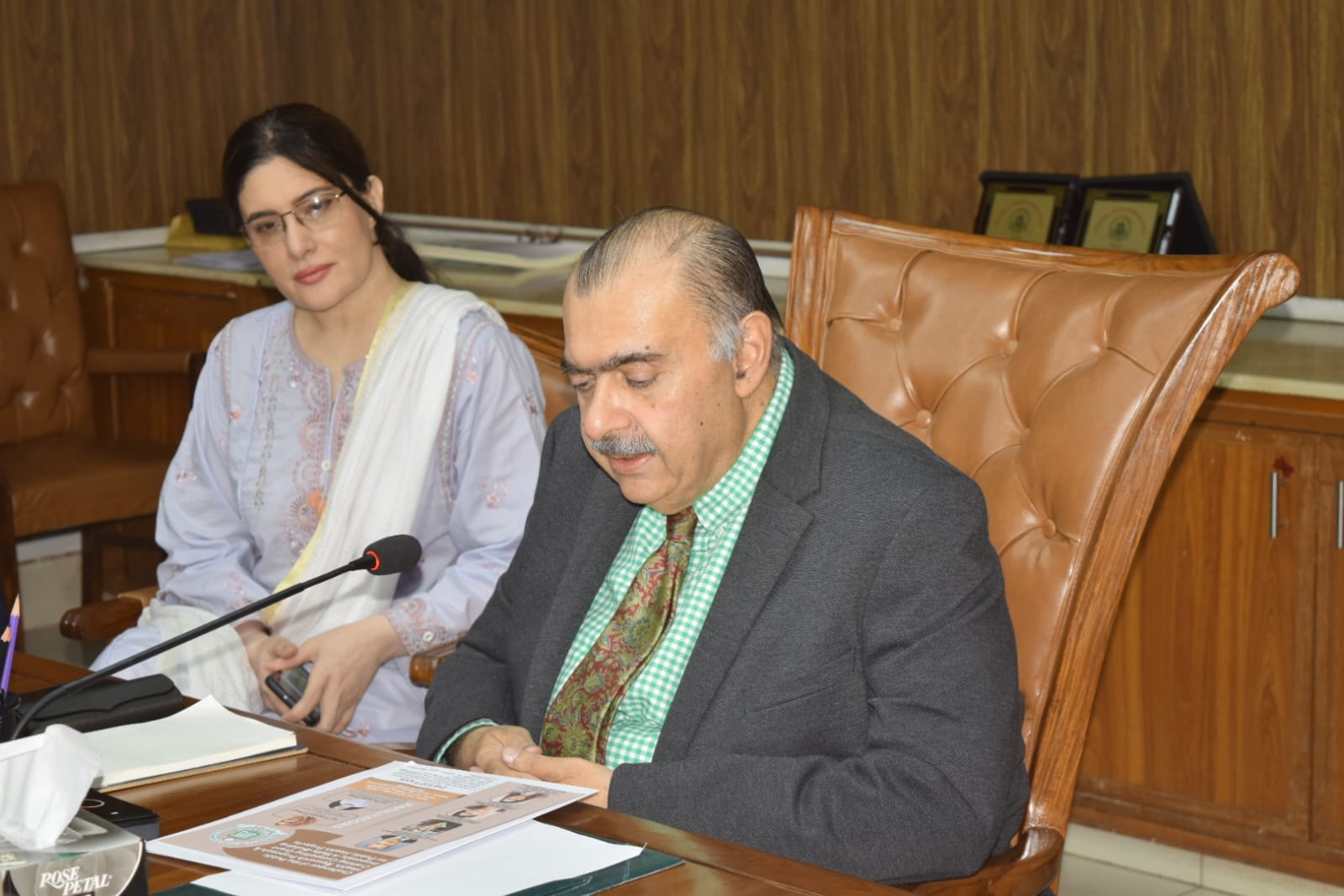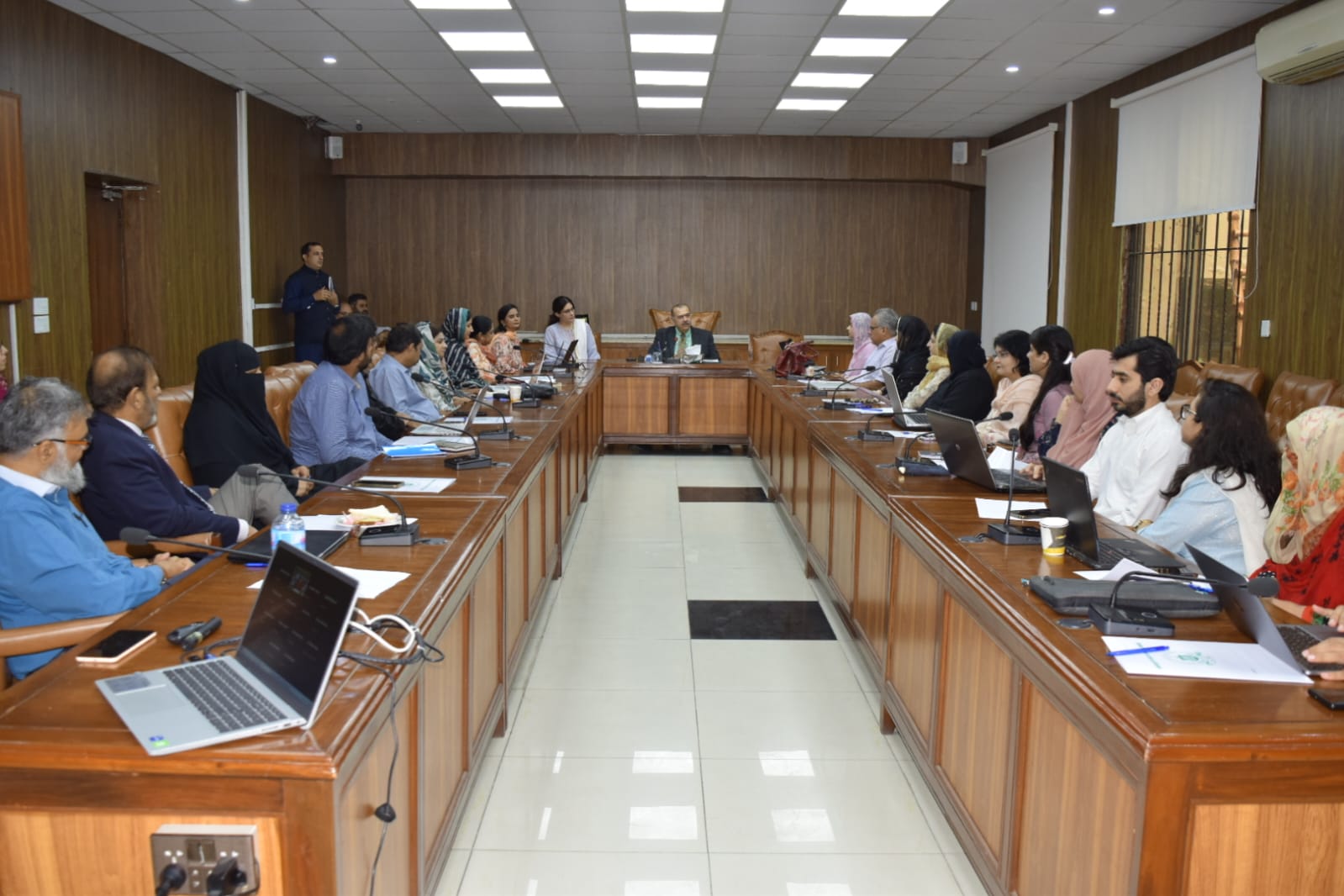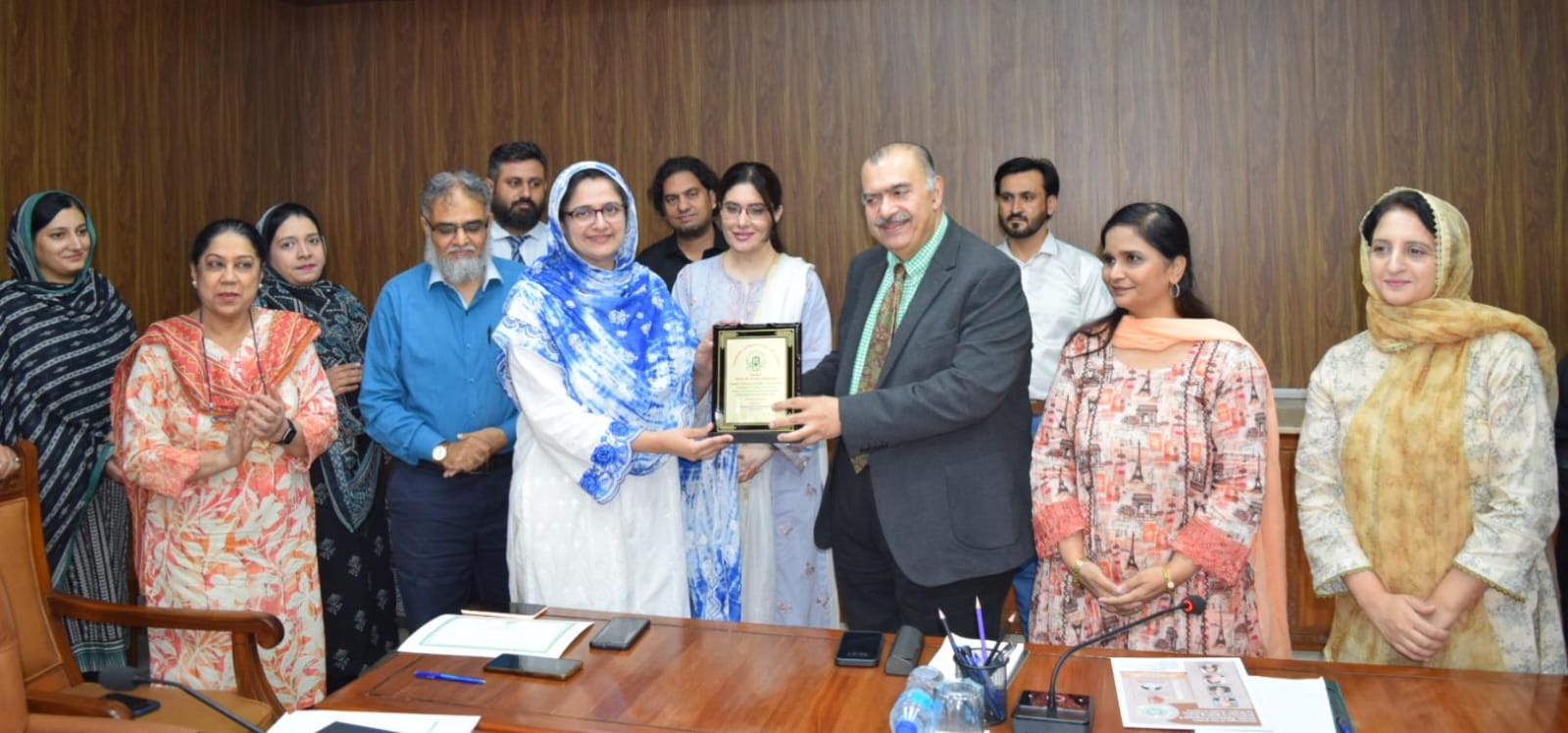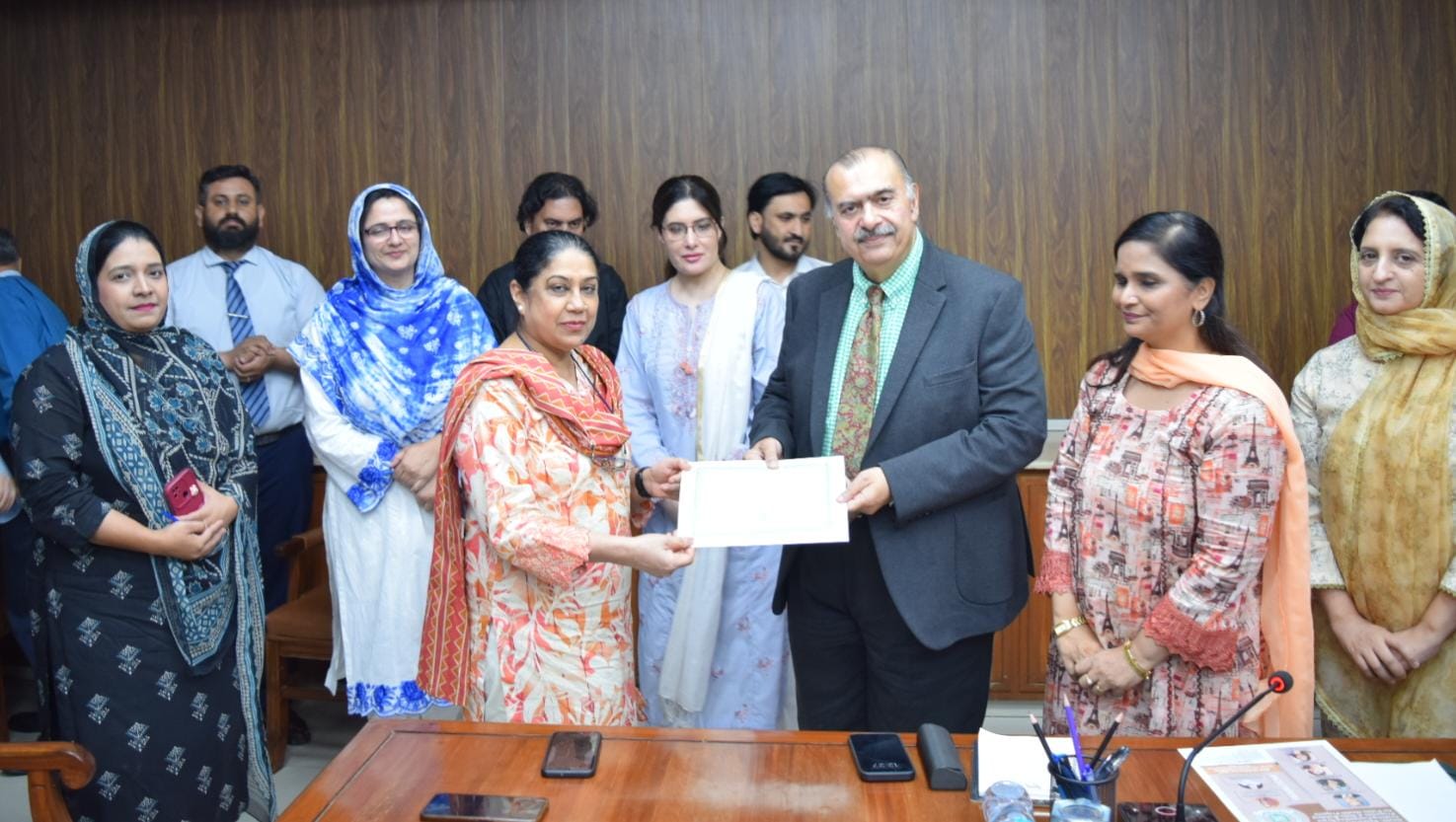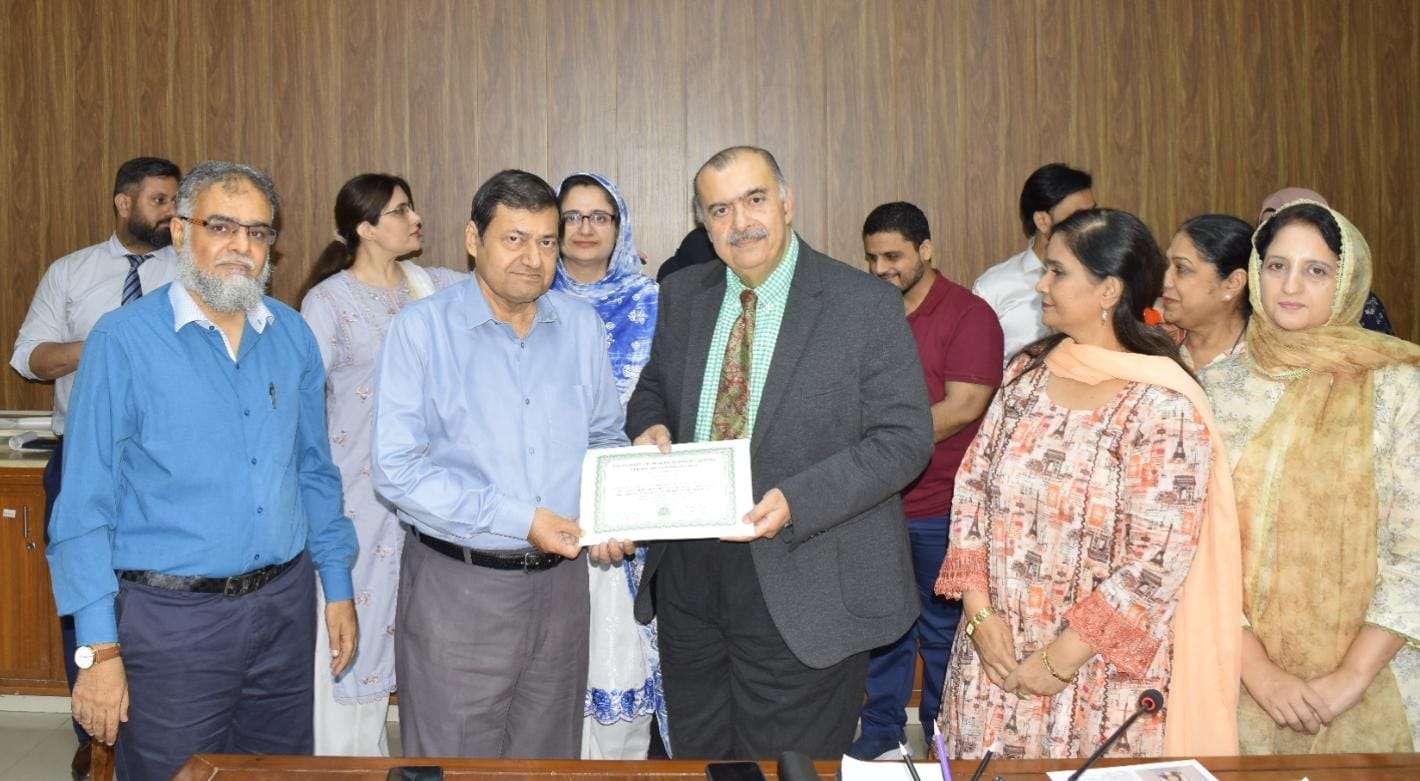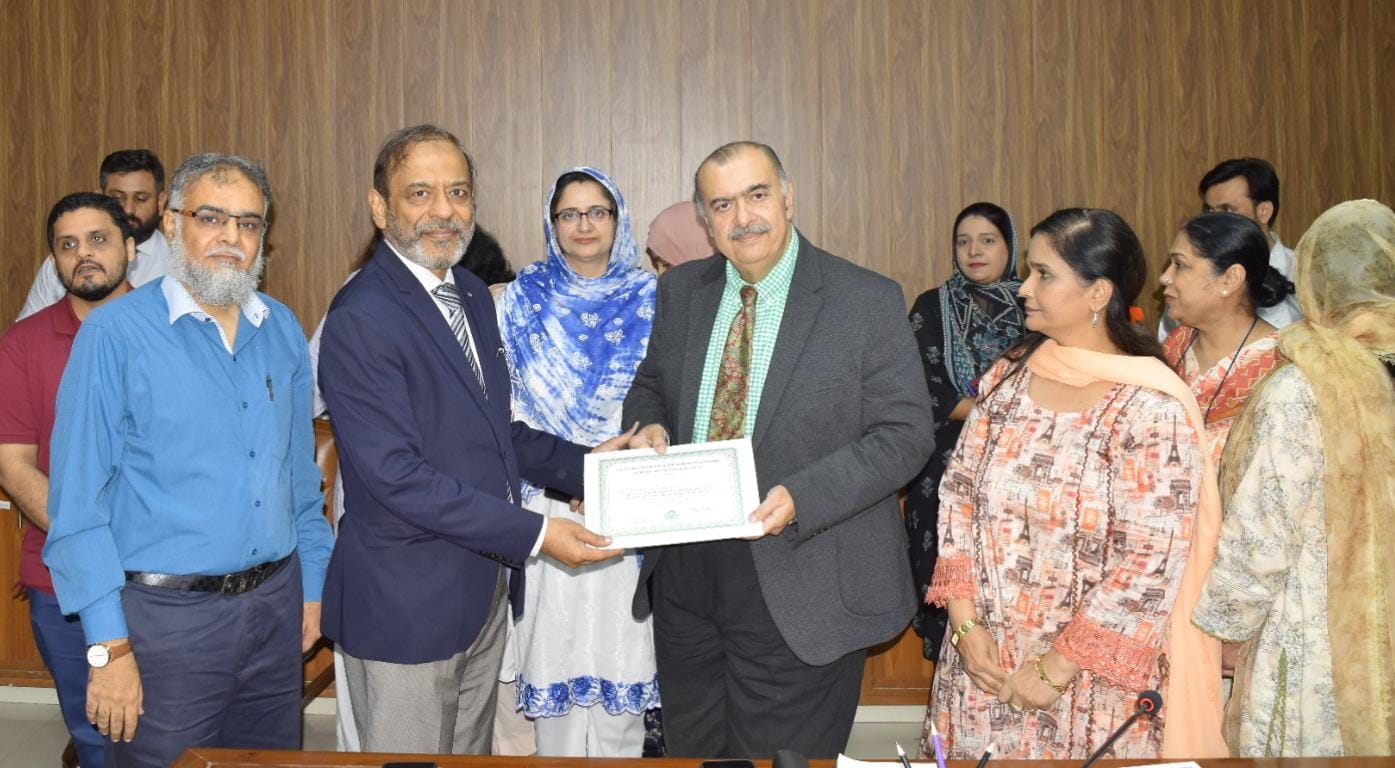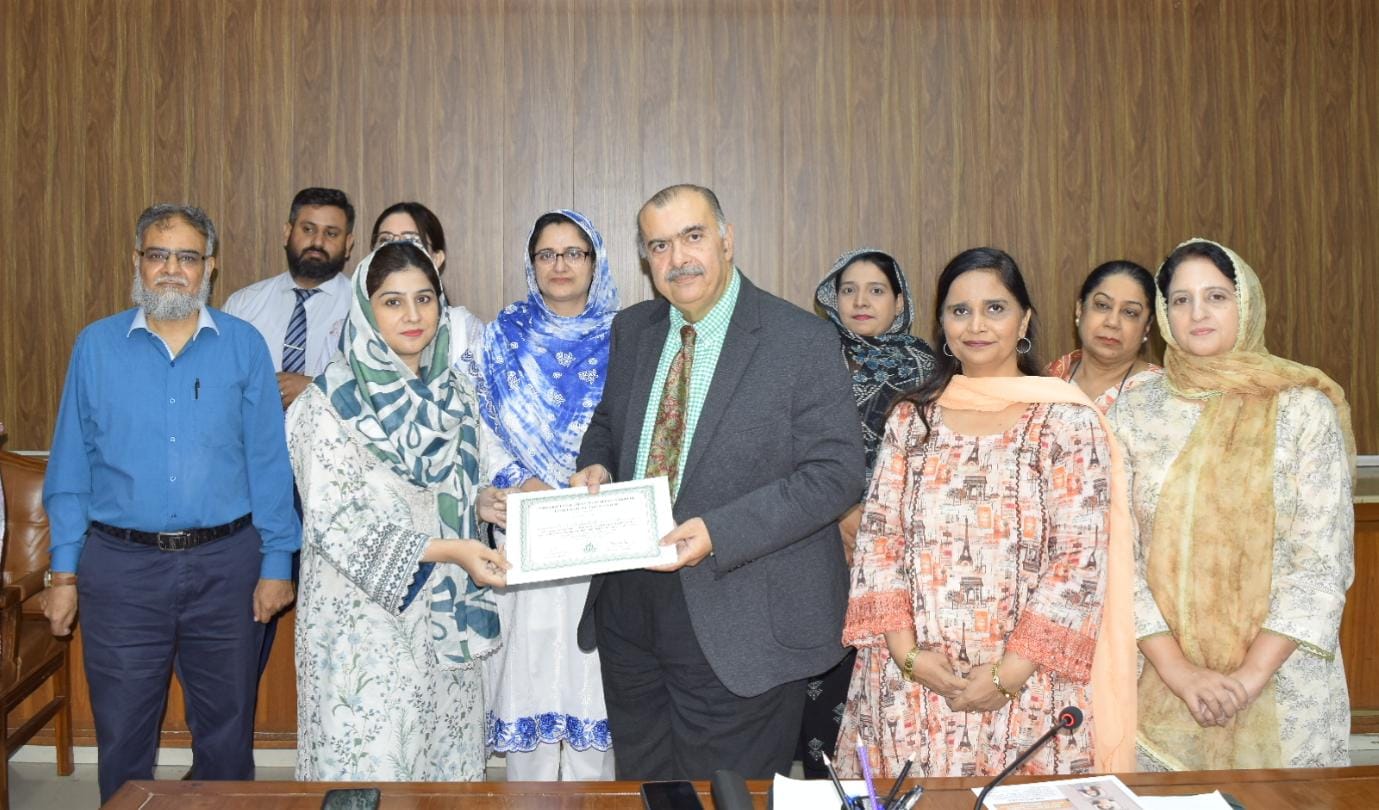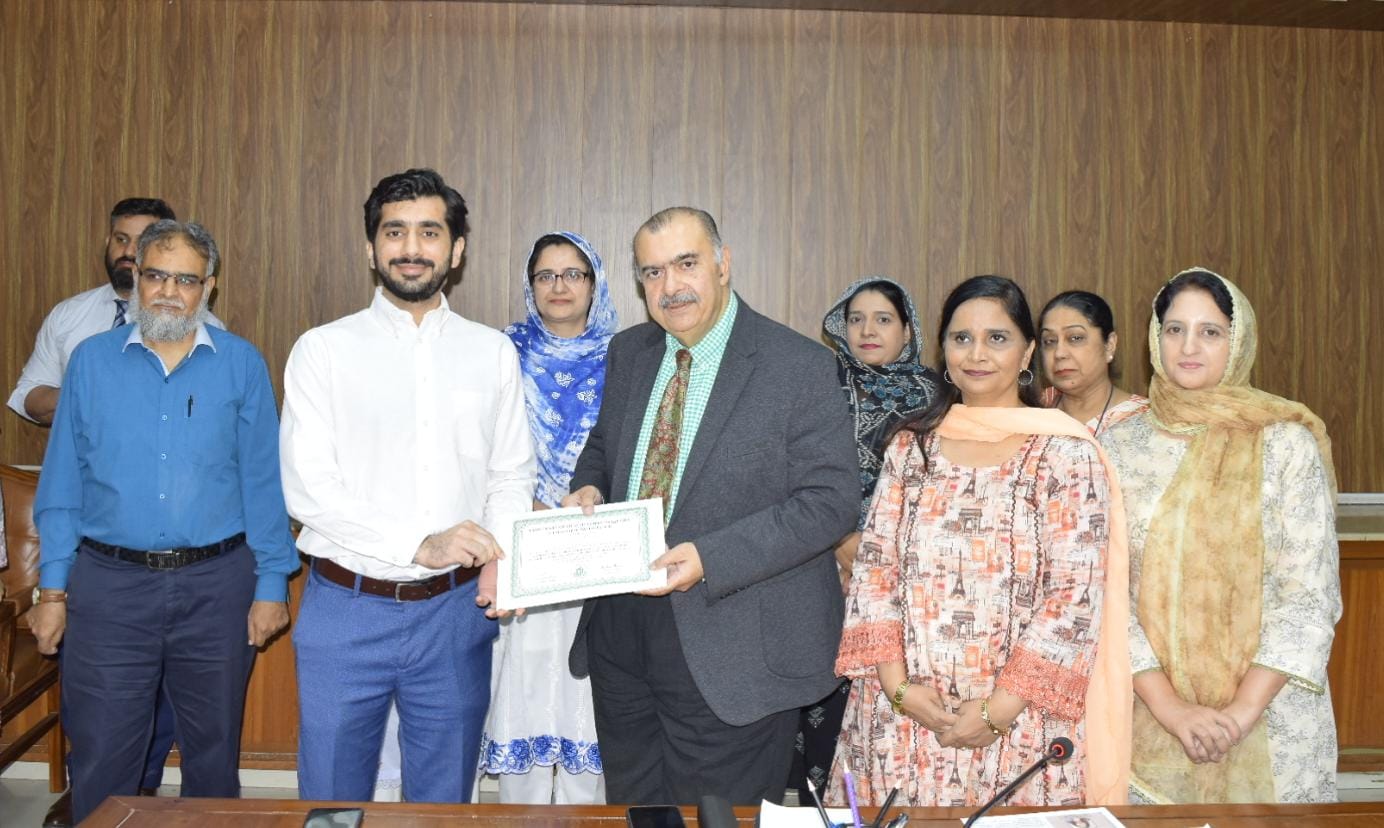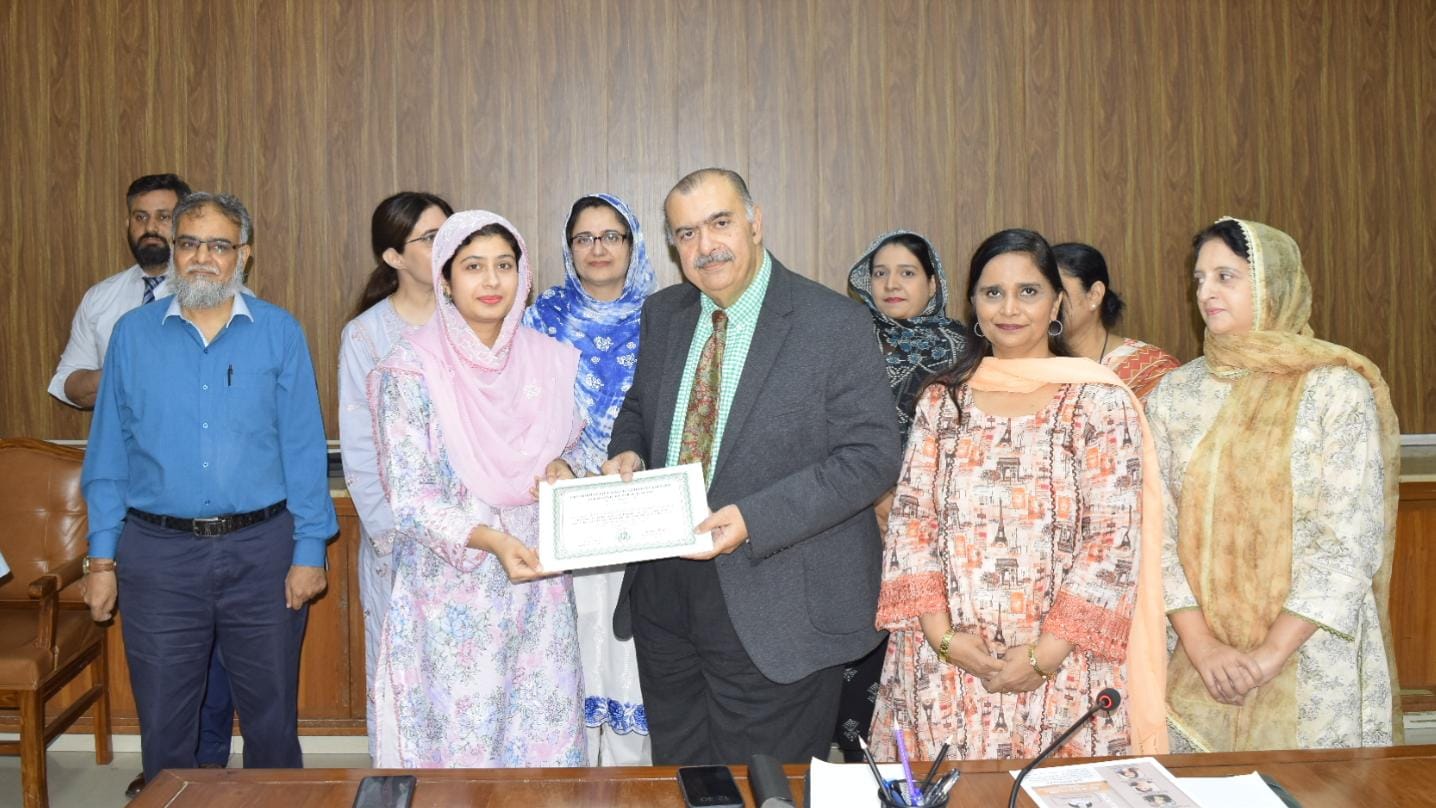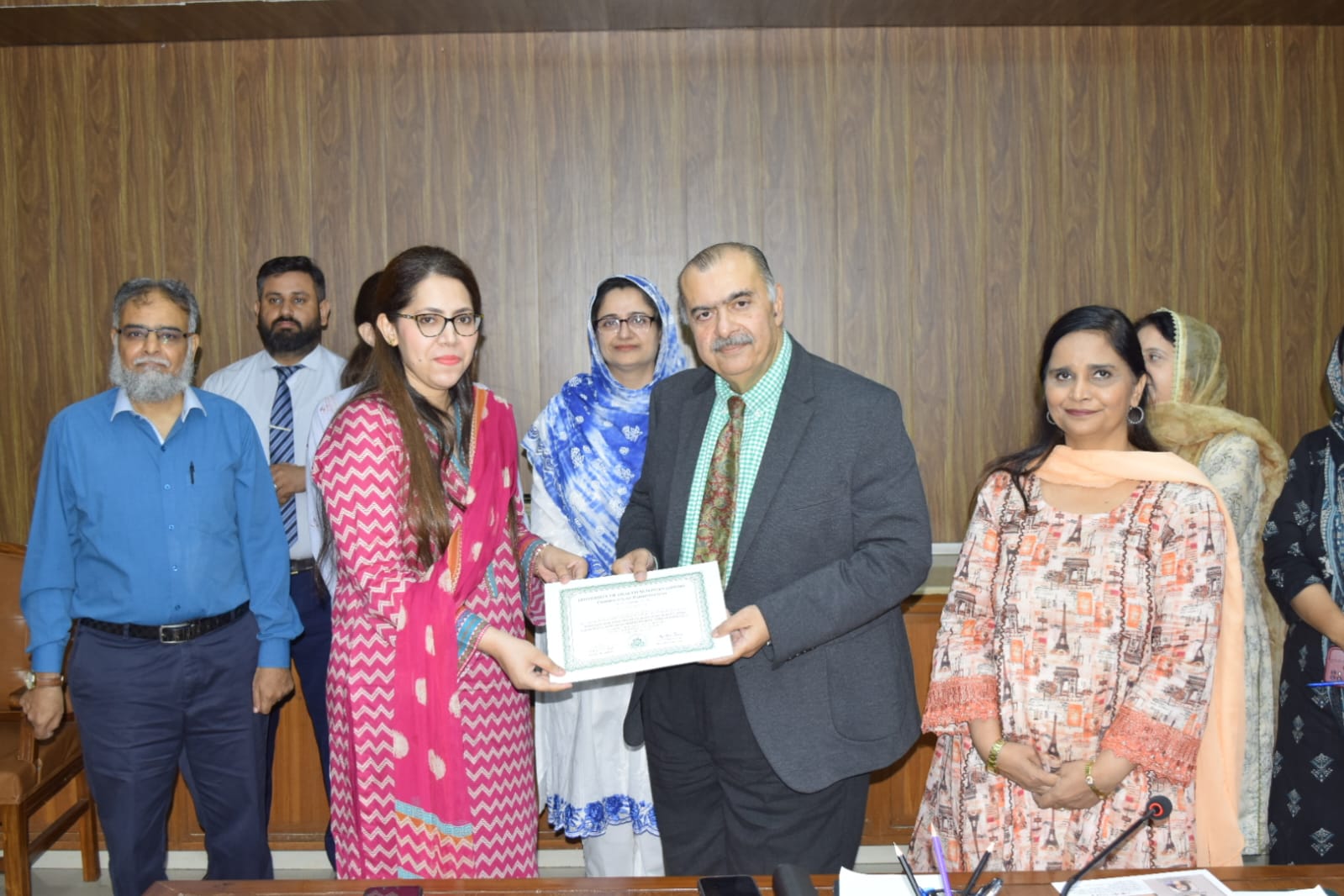Awareness urged as only 48pc children breastfed in Pakistan
LAHORE, Aug 20: Health experts on Wednesday called for greater awareness on breastfeeding, noting that the rate in Pakistan remains only 48 per cent despite its proven health benefits for both mothers and children.
They were speaking at a seminar on breastfeeding organised by the University of Health Sciences (UHS) in collaboration with Pakistan. The event was attended by faculty members, students and health professionals.
Prof Sajid Maqbool, a senior paediatrician and chief guest on the occasion, stressed that mothers and children should be treated as a single unit because the health of one directly affects the other. He said there is no substitute for mother’s milk and preparation for breastfeeding should ideally begin before pregnancy. He emphasised that newborns must be given breast milk within the first hour of birth, exclusively for six months, and continued with complementary food for two years.
UNICEF nutritionist Najma Ayub said breastfeeding is the fundamental right of every child and highlighted that global Breastfeeding Awareness Week is observed in August. Citing 2024 data, she pointed to a worrying decline in breastfeeding rates in Punjab. Formula milk, she said, was not a benevolent product but a marketing ploy. She urged stronger legislation and workplace facilities to support nursing mothers.
Prof Khawaja Ahmad Irfan Waheed, neonatologist, said breastfeeding prevents about 800,000 child deaths worldwide each year and could reduce child mortality under five years by 13 per cent. In Pakistan, the breastfeeding rate is just 48 per cent, he said, whereas it should be universal. He added that breastfed children have higher IQs and mothers who breastfeed face lower risks of breast and ovarian cancers. Globally, breastfeeding could save the health sector $302 billion annually.
He further said that household resistance, particularly from grandmothers, was a major obstacle, and cultural attitudes needed to change. “Weakness comes from within the household. The blame cannot be put solely on formula milk,” he remarked. He added that formula feeding places an additional 15 to 30 per cent burden on the household budget.
Prof Rubina Sohail, gynaecologist, noted that infections remain the leading cause of infant mortality in Pakistan, where neonatal deaths stand at 39 per 1,000 live births and have not declined over the past two decades. She described the first breast milk as the “golden drop” and nature’s first vaccine, but regretted that medical and nursing students in Pakistan receive inadequate training on breastfeeding during their studies.
Other participants included Prof Sidrah Saleem, Prof Asif Naveed, Dr Midhat Salman and Dr Uzma Jabeen.
UHS launches "Pyari Beti" portal and helpline to guide adolescent girls
The varsity will provide authentic guidance on puberty and reproductive health issues
Lahore, November 22: The University of Health Sciences (UHS) has launched an online portal titled "Pyari Beti" and helpline to provide adolescent girls with authentic guidance on puberty and reproductive health. The initiative aims to address physical, emotional, and psychological challenges faced by young girls during adolescence. The "Pyari Beti" portal is accessible on the UHS website, while a dedicated helpline (99232088) will allow girls to consult health experts twice a week.
The official inauguration was conducted by UHS Vice Chancellor Prof. Ahsan Waheed Rathore during a seminar organized by the Department of Public Health on Friday. The seminar, themed "Living with Confidence: A Girl's Guide," was attended by over 100 orphan girls aged 9 to 15 from institutions such as Dar-ul-Shafqat, Kashana, and SOS Villages in Lahore.
Punjab Assembly member and Parliamentary Secretary for Specialized Healthcare Ms. Rushda Lodhi attended the event as the chief guest. Speaking at the seminar, Prof. Rathore emphasized the importance of this initiative in raising awareness about physical challenges during puberty. He stated, "This effort will empower girls to live with confidence and dignity. As parents and as a society, we have fallen short of fulfilling our responsibilities, but it is time to bridge that gap. If any girl faces difficulties, she should feel free to consult her elders or our experts". He added that it is essential to normalize discussions about what is natural. "These girls are the future of our society, and their guidance is our foremost responsibility", he emphasized.
UHS Pro-Vice Chancellor Prof. Nadia Naseem hailed the "Pyari Beti" portal as a significant milestone for guiding young girls. "We are committed to providing girls with essential information and support regarding their health and lives. This portal will help dispel myths related to health and adolescence," she remarked. She added that the portal offers easy-to-understand and reliable information from health experts.
Chief guest Ms. Rushda Lodhi highlighted the strides made in women's empowerment in Punjab, crediting the leadership of Chief Minister Maryam Nawaz. She urged girls to make full use of this initiative and spread awareness about the "Pyari Beti" portal among their peers.
During the seminar, gynecologist Prof. Alia Bashir elaborated on the physical and psychological changes girls experience during puberty. She stressed that this is a vulnerable age when girls are often misled by inaccurate information, and UHS's initiative will play a crucial role in boosting their confidence and understanding. Prof. Najaf Masood, a pediatrician, praised UHS for taking on the role of a guardian for adolescent girls, ensuring they receive the care and guidance they deserve.
Director General Punjab Social Welfare Department, Mr. Khawaja Sikandar Zeeshan, commended UHS for tackling sensitive issues and facilitating open discussions. He assured the department’s full support for the initiative, which he said would pave the way for a safer and brighter future for young girls.
Other speakers included Khalida Nauman, Project Director of SOS Village Johar Town; Almas Butt, Director of SOS Village; Prof. Sidrah Saleem, Head of the Department of Microbiology; Public Health Lecturer Hassan Zahid; and nutritionist Wardah Nisar.
UHS holds seminar on nutrition curriculum and pedagogy
Lahore, Aug 26: The University of Health Sciences (UHS) on Tuesday hosted a one-day seminar on “Teaching Nutrition for Tomorrow: Effective Curriculum and Pedagogy in Dietetics” as part of its Discipline Specific Faculty Councils (DSFC) initiative.
The seminar was organised by the Department of Human Nutrition and Dietetics and brought together around 50 participants, including faculty, researchers, and students. The discussions revolved around two key themes: curriculum innovation in nutrition and dietetics, with a focus on preparing students for emerging health challenges, and the integration of evidence-based practice into teaching to strengthen clinical decision-making and patient care.
Guest speakers included Dr Shazia Zahra, Associate Professor and Director of the Nutrition Program at NUR-Fatima Memorial System, and Ms Zoha Sohail, Assistant Professor at PKLI Institute of Nursing and Allied Health Sciences.
From the UHS Department of Public Health, Dr Sumera Ehsan Badar, Dr Uzma Jabeen, Anam Saeed, Moha Akram Khan, Nayab Fatima, Warda Nisar, Dr Hassan Zahid, Dr Sibghah, and Dr Quratul Ain attended the event.
UHS Pro-Vice Chancellor Prof Dr Nadia Naseem concluded the seminar by highlighting the objectives of the DSFC initiative and appreciating the contributions of the guest faculty.
UHS holds seminar on challenges of public health and grant writing
Lahore, Sept 1: The University of Health Sciences (UHS) on Monday organized a seminar on “Challenges of the Public Health, Research Proposals and Crafting Compelling Grant Proposals: A Skills-Building for Public Health Projects". It was a part of UHS ongoing Discipline Specific Faculty Councils (DSFC) initiative.
The session aimed to train faculty and researchers in designing effective proposals for public health projects, identifying funding sources, and developing strategies to enhance competitiveness in grant applications.
UHS Vice Chancellor, Prof Dr Ahsan Waheed Rathore, addressed the participants and highlighted the importance of linking research with community needs. He also spoke about the varsity’s flagship initiative, Pyari Beti Portal, which provides support to adolescent girls on reproductive health, nutrition, and menstrual health.
“This initiative is designed to empower young girls with knowledge and confidence so they can make informed choices about their health,” Prof Rathore said. “Through Pyari Beti, we aim to bridge gaps in awareness and help shape a healthier, more informed generation.”
He further added that public health projects must be more than academic exercises. They should translate into tangible outcomes that improve lives, especially for vulnerable groups like adolescent girls. That is the vision behind Pyari Beti.
The seminar was facilitated by Prof Dr Ayesha Humayun, Principal Shaikh Khalifa Bin Zayed Al-Nahyan Medical College Lahore, and Prof Dr Sumair Anwar, Professor of Community Medicine, Gujranwala Medical College.
Prof Dr Sumera Ehsan, Head of Medical Education and Public Health at UHS, and Dr Farah Rehman, Associate Professor DME, played key roles in organizing and supporting the event.
The workshop focused on problem statement development, proposal writing techniques, budgeting, and strategies to make grant applications more competitive.
Visit to Directorate of EPI Program DGHS (27 Jun 2024)
A Visit to UNICEF Regional Office Punjab (14 November 2024)

A Visit to WHO Regional Office Punjab (11 July 2024)
A Visit to Directorate of IRMNCH & Family Planning Program (31 Octobar 2024)
A Field Visit to Basic Health Unit chak 44 Ferozwala (13 June 2024)

A Field Visit to Rural Health Center chak 44 Ferozwala (13 june 2024)

A Field Visit to Directorate of EP & CDC Program (27 june 2024)

A Field Visit to EPI WareHouse (22 Octobar 2024)

UNICEF Seminar on HPV vaccination in Punjab

A Competition of Neutraceuticals Artwork Among PH Students batch-3



